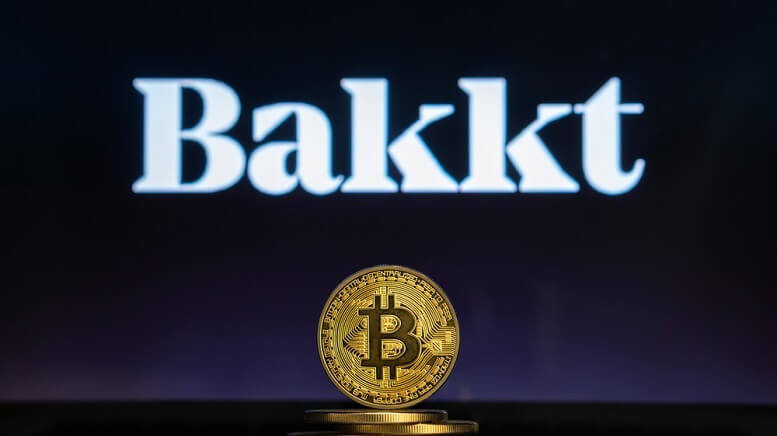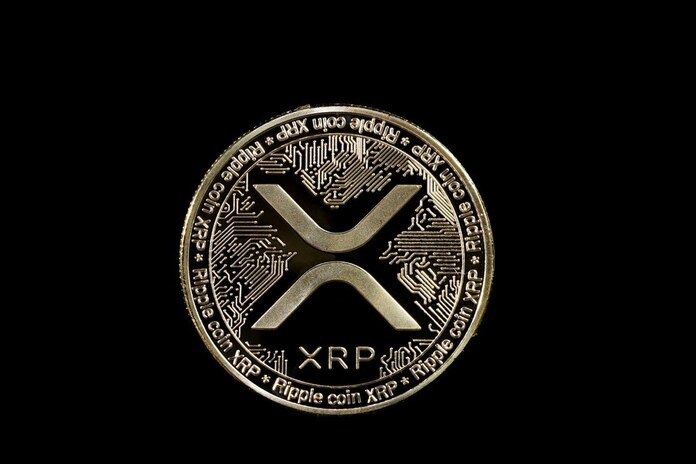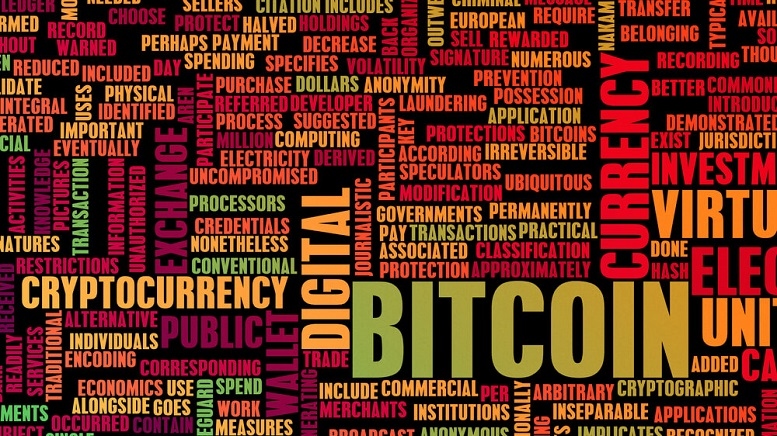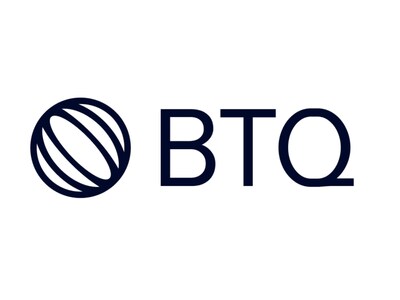This post was originally published on this site
hourly
1
VANCOUVER, BC , Oct. 1, 2025 /CNW/ – Intellistake Technologies Corp. (CSE: ISTK) (OTCQB: ISTKF) (FSE: E41) (“Intellistake” or the “Company”) today announces that it has entered into a non-binding Letter of Intent (“LOI”) dated September 29, 2025 and signed by the Company on September 30, 2025, to acquire Singularity Venture Hub (“SVH”), a digital-asset firm specializing in incubation, treasury management, and web3 advisory (“Transaction”). The Transaction aims to position Intellistake at the crossroads of traditional finance and decentralized AI. SVH manages over US$90 million (unaudited) in assets and oversees advisory services across a token portfolio that reached a valuation of US$250 million* (unaudited) and operates in authorized jurisdictions in reliance of Swiss VASP/CASP licenses for trading and custody operations. With its institutional framework and track record in digital assets, the aim of the Transaction is to have SVH bring the scale, credibility, and expertise to strengthen Intellistake’s mission of supporting decentralized AI — through validator infrastructure, enterprise AI agents, and a strategic token reserve. SVH’s leadership team is equally significant. Founder Mario Casiraghi, Group CFO of the SingularityNET Foundation, has deep roots in both global finance and Web3. Earlier in his career, he executed over US$80 billion in structured transactions at leading investment banks. This rare combination of institutional discipline and decentralized market expertise is exactly why the Company believes SVH is a standout in AI and Web3 ecosystems. By acquiring SVH, Intellistake seeks to gain an experienced team and an established institutional treasury platform, strengthening its foundation to deliver secure, compliant digital-asset access that traditional investors can trust. The LOI states Intellistake’s intention of acquiring 100% of the outstanding securities of SVH in exchange for approximately C$25 million of Intellistake common shares (“Intellistake Shares“), based on a price of C$1.78 per Intellistake Share representing a total of 14,044,943 Intellistake Shares. The Intellistake Shares will be subject to escrow and contractual trading restrictions to be set out therein as well. Upon closing, Mario Casiraghi would be appointed to the Intellistake Board of Directors and potentially enter into a management services agreement with Intellistake. The Transaction is arm’s length and no long-term debt is being assumed as part of the Transaction. The Transaction builds on the companies’ existing collaboration, which has already seen SVH establish Intellistake’s digital wallets and enable third-party staking and validator node operations to support decentralized AI. It follows the exclusive partnership between the Company and Intellistake announced on July 16, 2025, and Mr. Casiraghi’s appointment to the Intellistake Advisory Board on July 23, 2025.
Jason Dussault, CEO of Intellistake, commented: “SVH operates to institutional standards in a sector that demands credibility and discipline. Their experience in managing significant digital-asset portfolios is exactly the type of expertise that we believe will strengthen Intellistake’s foundation. This potential acquisition would give us the structure to expand institutional-grade custody, scale validator infrastructure, and deliver enterprise AI-agent solutions in a way that traditional investors can trust. Working with Mario and his team has been an absolute pleasure. I look forward to many exciting opportunities in this fast moving space.”
Mario Casiraghi, Founder of Singularity Venture Hub, said: “We see real potential in joining forces with Intellistake. SVH brings treasury, incubation, and advisory expertise that has been proven in digital-asset markets. Combined with Intellistake’s public-market platform, we can build a powerful bridge between traditional finance and decentralized AI infrastructure. This is about creating access at scale — and positioning Intellistake at the centre of that shift.” Completion of the Transaction remains subject to completion of satisfactory due diligence, the negotiation and execution of a definitive agreement (“Definitive Agreement“) that will include representations, warranties, covenants, indemnities, termination rights, and other provisions customary for a transaction of this nature, no objection from the Canadian Securities Exchange, and shareholder approval of SVH, if required. The parties intend to finalize the Definitive Agreement within approximately 45 days, with a closing targeted within 60 days thereafter, subject to satisfaction of closing conditions in the Definitive Agreement. The Company also announces that it has entered into an agreement with Think Ink Marketing Data & Email Services LLC (“Think Ink”) to provide public relations services in an effort to increase public awareness of the Company and its services and securities. Certain services to be provided by Think Ink are anticipated to include ‘investor relations activities’ under the policies of the Canadian Securities Exchange and applicable securities laws. The agreement is for a 12 month term commencing September 26, 2025 with either party having the right to terminate upon 30 days written notice. The Company has budgeted up to US$300,000 for the marketing services of Think Ink, which include facilitating the creation and distribution of marketing materials, on-line banner and Native / Display advertising on platforms such as Google and Taboola, video content distribution on platforms such as YouTube, social media coverage on platforms such as X, TikTok, and Meta, and email distribution to subscribers of various newsletters. Think Ink is a California-based marketing firm established in 1991 that provides its customers with a complete range of marketing services that includes data appending, e-mail marketing and pay-per-click on-line banner/native ads. Think Ink helps its clients to reach a large network of potential investors. No stock options are being granted to Think Ink under the terms of its engagement. The contact information for Think Ink is Think Ink Marketing Data & Email Services LLC, 3308 W. Warner Ave., Santa Ana, California 92704; Phone: 310-760-2616; Email: claire@thinkinkmarketing.com. Think Ink and its principals are arm’s length to the Company.
About Intellistake
Intellistake Technologies Corp. (CSE: ISTK) is developing software solutions that leverage decentralized AI infrastructure to deliver enterprise-grade intelligence. Through validator operations, strategic token participation, and the development of enterprise AI agents, Intellistake seeks to bridges the gap between emerging decentralized networks and real-world industry adoption. For additional information on the business of Intellistake please refer to https://www.intellistake.ai/.
About Singularity Venture Hub
Singularity Venture Hub is a digital-asset firm active across treasury management, incubation, and advisory within the AI and Web3 sectors, with established relationships across the SingularityNET ecosystem and broader decentralized-AI landscape. Information regarding SVH in this news release has been provided by SVH, and the financial information relating to SVH is unaudited at this time. Although the Company does not have any knowledge that such information may not be accurate, there can be no assurance that such is complete or accurate until due diligence has bene completed. SVH is a private company incorporated pursuant to the laws of Cayman Islands. To learn more about Singularity Venture Hub, please visit: https://www.singularityventurehub.ai/
*
Cautionary Note Regarding Forward-Looking Information
This news release contains “forward-looking information” concerning anticipated developments and events related to the Company that may occur in the future. Forward looking information contained in this news release includes, but is not limited to, all statements in respect of the Company’s growth and development, the operations and business segments of the Company, support for decentralized AI and blockchain networks, the details of the proposed acquisition of SVH, the conditions to completion of the proposed acquisition of SVH, the benefits of the acquisition of SVH and building powerful bridge between traditional finance and decentralized AI infrastructure. In certain cases, forward-looking information can be identified by the use of words such as “expects”, “intends”, “anticipates” or variations of such words and phrases or state that certain actions, events or results “may”, “would”, or “might” suggesting future outcomes, or other expectations, assumptions, intentions or statements about future events or performance. Forward-looking information contained in this news release is based on certain assumptions regarding, among other things, the Company and SVH are satisfied with their respective due diligence; the Company and SVH enter into a definitive agreement for the transaction; the Company and SVH satisfy all conditions necessary to close the proposed transaction; the Company will continue to have access to financing until it achieves profitability; the technology and blockchain industries in which the Company intends to focus its business in will grow at the rate and in the manner expected; the ability to attract qualified personnel; the success of market initiatives and the ability to grow brand awareness; the ability to distribute Company’s services; the Company creates strategies to mitigate risks associated with cryptocurrency price fluctuations; the Company and SVH remain compliant with all applicable laws and securities regulations and applicable licensing requirements; the Company engages and collaborates with local experts, as necessary, to address jurisdiction-specific matters and ensures compliance with foreign regulations to avoid penalties; the Company addresses any potential cybersecurity threats promptly and effectively; the ability of the Company to develop its technology, acquire customers and have revenue; the ability to successfully deploy the new business strategy as a result of the change of business. While the Company considers these assumptions to be reasonable, they may be incorrect. Forward looking information involves known and unknown risks, uncertainties and other factors which may cause the actual results to be materially different from any future results expressed by the forward-looking information. Such factors include risks related to general business, economic and social uncertainties; failure of the Company and SVH enter into a definitive agreement for the transaction; failure of the Company and SVH to satisfy all conditions necessary to close the proposed transaction; failure to raise the capital necessary to fund its operations; inability to create strategies to mitigate the risks associated with cryptocurrency price fluctuations; the costs of regulation in the digital asset industries increase to the extent that the Company is no longer generating sufficient returns for shareholders; failure to promptly and effectively address cybersecurity threats; insufficient resources to maintain its operations on a competitive basis; and the actual costs, timing and future plans differs expectations; legislative, environmental and other judicial, regulatory, political and competitive developments; the inherent risks involved in the cryptocurrency and general securities markets; the Company may not be able to profitably liquidate its current digital currency inventory, or at all; a decline in digital currency prices may have a significant negative impact on the Company’s operations; the Company’s success may depend on the continued involvement of key personnel, including advisors, whose involvement cannot be guaranteed; institutional adoption of decentralized AI infrastructure remains uncertain and may not occur at the pace or scale anticipated; evolving regulatory frameworks, including those related to AI (such as Canada’s proposed Artificial Intelligence and Data Act), may impose additional compliance burdens or restrict certain business activities; valuation figures are based on publicly available market data and internal assessments at the time of the referenced transactions and may not reflect current or future valuations; the volatility of digital currency prices; the inherent uncertainty of cost estimates and the potential for unexpected costs and expenses, currency fluctuations; regulatory restrictions, liability, competition, loss of key employees and other related risks and uncertainties; delay or failure to receive regulatory approvals; failure to attract qualified personnel, labour disputes; and the additional risks identified in the “Risk Factors” section of the Company’s filings with applicable Canadian securities regulators. Although the Company has attempted to identify factors that could cause actual results to differ materially from those described in forward-looking information, there may be other factors that cause results not to be as anticipated. Readers should not place undue reliance on forward-looking information. The forward-looking information is made as of the date of this news release. Except as required by applicable securities laws, the Company does not undertake any obligation to publicly update forward-looking information. SOURCE Intellistake Technologies Corp. Featured Image: depositphotos @ nils Key Highlights: $90M USD in digital assets under management by Singularity Venture Hub (“SVH”). $250M USD* in valuation of projects incubated for SVH clients. Founder of SVH, Mario Casiraghi, also serves as Group CFO of the SingularityNET Foundation and brings experience from over US$80 billion in structured transactions during his career in global banking. Upon closing, Casiraghi … Continue reading “Intellistake Technologies Corp. Signs Letter of Intent to Acquire Premier AI-Web3 Venture Accelerator Singularity Venture Hub”]]>
Key Highlights: $90M USD in digital assets under management by Singularity Venture Hub (“SVH”). $250M USD* in valuation of projects incubated for SVH clients. Founder of SVH, Mario Casiraghi, also serves as Group CFO of the SingularityNET Foundation and brings experience from over US$80 billion in structured transactions during his career in global banking. Upon closing, Casiraghi … Continue reading “Intellistake Technologies Corp. Signs Letter of Intent to Acquire Premier AI-Web3 Venture Accelerator Singularity Venture Hub”]]>

Key Highlights:
This figure reflects the combined fully diluted values of SVH-incubated clients as calculated in July 2025 during peak crypto market conditions. Valuations are indicative only, not representative of current or guaranteed client value, and remain subject to significant market fluctuations. 
Crypto continues to evolve at a rapid pace, and October 2025 brings the debut of Sandchain, a blockchain designed specifically for creators. Backed by The Sandbox (NASDAQ:SAND), this new network emphasizes a “creator-first” approach, using SAND as its native gas and governance token. The SANDChain Foundation announced that the network will launch publicly on October 1 at TOKEN2049 in Singapore, followed by a testnet rollout on October 14. With SAND already trading near $0.26 and listed on over 80 exchanges, investors and creators alike are watching closely to see if the network will generate measurable adoption. The Sandchain ecosystem is built on ZKsync’s ZK Stack and Caldera infrastructure, giving it scalability, security, and a foundation for zk-powered transactions. The network leverages The Sandbox’s existing user base of over 8 million, 25,000 LAND owners, 400 brand partners, 1,500 creator-built games, and 700,000 user-generated experiences to expand beyond gaming into the broader creator economy. Early access begins October 1 through a “Creator Manifesto.” The network’s first products, Patron Vaults and Creator Vaults, aim to support creator financing and streamline repayments from platforms like YouTube and TikTok. Each action on-chain is designed to enhance the utility of SAND, creating a self-reinforcing value loop within the ecosystem. Sandchain introduces three distinct value layers to support creators and incentivize engagement: SANDpoints – A reputation and loyalty system that tracks user engagement and rewards active participants. Creator Points – Measures fan support and guides the allocation of tokens, ensuring transparency in distributing rewards. Creator Tokens – Tradeable assets tied to individual creators, allowing fans to invest directly in their favorite artists and interact meaningfully with their brands. This structure positions Sandchain as a network designed not only for efficiency and security but also for fair and transparent value distribution. The project has received support from a wide array of prominent partners in the blockchain and gaming industries, including The Sandbox (NASDAQ:SAND), Animoca Brands, ZKsync, Sequence, EigenCloud, Caldera, Ready Player Me, Request Finance, and Halborn. Additionally, cultural and IP partnerships with artists like Agoria and Pucca highlight Sandchain’s commitment to a diverse creator ecosystem. Animoca Brands has already promoted the launch through its official channels, signaling strong institutional backing and market credibility. The SAND token serves dual purposes on Sandchain: it powers gas fees and functions as a governance token. This dual utility ensures that active participants—creators and fans alike—can meaningfully engage with the network while contributing to its security and decentralized decision-making. By integrating zk-powered scalability, Sandchain can handle complex interactions, such as Creator Vaults and Patron Vaults, with minimal friction, making the network more appealing to creators who require robust and flexible blockchain infrastructure. With its October launch, Sandchain has the potential to emerge as one of the most innovative crypto projects of the month. Its creator-first focus, strong partnerships, and integrated SAND token utility provide both technological and financial incentives. For investors, SAND’s integration into the network could drive demand for the token, while creators can access new monetization methods and fan engagement tools. In short, Sandchain is a strategic evolution of The Sandbox ecosystem, turning user-generated content and fan interactions into measurable, tradeable assets. As adoption grows, both SAND holders and creators stand to benefit from the network’s expansion into the broader creator economy. By linking gaming, content creation, and tokenized assets under a single, zk-powered blockchain, Sandchain may well become the standout crypto for October 2025. Featured Image: Freepik Crypto continues to evolve at a rapid pace, and October 2025 brings the debut of Sandchain, a blockchain designed specifically for creators. Backed by The Sandbox (NASDAQ:SAND), this new network emphasizes a “creator-first” approach, using SAND as its native gas and governance token. The SANDChain Foundation announced that the network will launch publicly on October … Continue reading “Sandchain: The Creator-First Blockchain Arriving in October”]]>
Crypto continues to evolve at a rapid pace, and October 2025 brings the debut of Sandchain, a blockchain designed specifically for creators. Backed by The Sandbox (NASDAQ:SAND), this new network emphasizes a “creator-first” approach, using SAND as its native gas and governance token. The SANDChain Foundation announced that the network will launch publicly on October … Continue reading “Sandchain: The Creator-First Blockchain Arriving in October”]]>

Why Sandchain Matters for Creators
The Three Layers of Sandchain Value
Backing and Strategic Partnerships
SAND Token Utility
Why Investors and Creators Should Watch
September marked a significant moment for digital asset investors, as multiple Crypto ETFs entered the market. The REX-Osprey XRP ETF (XRPR) focuses on Ripple’s token, XRP. The REX-Osprey DOGE ETF (DOJE) offers exposure to the meme coin Dogecoin. Meanwhile, the Grayscale CoinDesk Crypto 5 ETF (GDLC) tracks a basket of five major crypto assets, including Bitcoin and Ethereum. Together, these launches highlight a renewed acceleration of Crypto ETFs, following the earlier debut of Bitcoin ETFs that reshaped the investment landscape. While not all the funds have seen immediate traction, their presence signals growing investor interest in regulated, accessible crypto investment vehicles. Of the new launches, XRPR attracted the most attention, recording around $67 million in inflows and setting the record for first-day trading volume in the ETF sector this year. Bloomberg’s Eric Balchunas noted that the Ripple-linked fund generated historic trading activity, with DOJE also ranking in the top five ETF debuts of 2025. Despite this strong start, performance has been uneven. Since launch, XRPR is down about 7%, while DOJE has fallen 17%. GDLC, by contrast, already dwarfs both funds with approximately $749 million in assets under management. However, GDLC has faced net outflows—common for funds converting from trust structures to ETFs. The arrival of these Crypto ETFs is more than just another investment product launch. They reflect a broader shift toward making digital assets easier for mainstream investors to access. David Lawant, Head of Research at FalconX, explained that ETFs tracking indexes could be the real breakthrough. These allow investors to gain diversified exposure without having to pick individual tokens. Financial advisers may find such products especially useful. Index-based ETFs have long been a cornerstone of traditional portfolios, and their crypto equivalents could see strong demand once regulatory clarity improves further. The regulatory environment has been a key driver of Crypto ETF expansion. Following President Donald Trump’s reelection, many in the industry expected a more favorable stance from the Securities and Exchange Commission (SEC). In July, Bloomberg analyst James Seyffart predicted that most pending applications would gain approval by 2026. That forecast gained momentum when the SEC approved a framework to fast-track new Crypto ETFs. This doesn’t ensure investor enthusiasm, but it does streamline how quickly new funds can enter the market. Easier approval could lead to more creative, niche ETFs emerging in the coming years. While the short-term price action has been volatile, the broader takeaway is that Crypto ETFs are here to stay. Their convenience, transparency, and regulatory oversight make them attractive to both retail investors and institutions exploring the crypto sector. The introduction of index-based products like GDLC could pave the way for stronger adoption, particularly among cautious investors who prefer diversified exposure. As Lawant emphasized, Crypto ETFs eliminate the need for asset-by-asset decision-making, a barrier that has long discouraged mainstream participation. The mixed early performance of XRPR, DOJE, and GDLC shouldn’t overshadow the long-term importance of these new funds. Investors looking for regulated entry points into digital assets now have more options than ever. As the SEC continues to approve new products, and as financial advisers grow comfortable recommending them, Crypto ETFs may become a standard component of modern portfolios—much like stock and bond ETFs today. For investors, the key is to evaluate these funds with the same rigor as any other investment: look at costs, liquidity, underlying assets, and long-term potential. If the recent launches are any indication, the future of Crypto ETFs is only beginning to unfold. Featured Image: Freepik September marked a significant moment for digital asset investors, as multiple Crypto ETFs entered the market. The REX-Osprey XRP ETF (XRPR) focuses on Ripple’s token, XRP. The REX-Osprey DOGE ETF (DOJE) offers exposure to the meme coin Dogecoin. Meanwhile, the Grayscale CoinDesk Crypto 5 ETF (GDLC) tracks a basket of five major crypto assets, including … Continue reading “Crypto ETFs: What Investors Should Know Now”]]>
September marked a significant moment for digital asset investors, as multiple Crypto ETFs entered the market. The REX-Osprey XRP ETF (XRPR) focuses on Ripple’s token, XRP. The REX-Osprey DOGE ETF (DOJE) offers exposure to the meme coin Dogecoin. Meanwhile, the Grayscale CoinDesk Crypto 5 ETF (GDLC) tracks a basket of five major crypto assets, including … Continue reading “Crypto ETFs: What Investors Should Know Now”]]>

Investor Reactions and Fund Performance
Why Crypto ETFs Matter for Investors
The Role of Regulation
The Road Ahead for Crypto ETFs
Final Thoughts
BTQ × Danal PoC live: Danal, Korea’s #1 mobile carrier billing provider and operator of Paycoin (PCI), has begun a Proof-of-Concept of BTQ’s Quantum-Secure Stablecoin Settlement Network (QSSN) across select payment rails, the world’s first large-scale trial of quantum-secure settlement on real infrastructure.
What’s being tested: QSSN adds post-quantum security, programmable issuer controls (mint/burn, velocity limits, lists), and real-time compliance hooks while preserving today’s consumer and merchant UX, leveraging Danal’s reach to tens of millions of users across e-commerce, gaming, digital content, and offline retail.
Why now (reg + standards): The PoC addresses “harvest-now, decrypt-later” risk and aligns with global standardization efforts (e.g., QUINSA, U.S. PQFIF), demonstrating that PQC can be deployed at national scale with carrier-grade performance and without operational disruption.
VANCOUVER, BC, Sept. 29, 2025 /CNW/ – BTQ Technologies Corp. (“BTQ” or the “Company”) (Nasdaq: BTQ) (CBOE CA: BTQ) (FSE: NG3), a global quantum technology company focused on securing mission-critical networks that Danal Co., Ltd. (“Danal“), Korea’s market leader in mobile carrier billing and operator of the Paycoin (PCI) payment service, has begun a Proof-of-Concept (“PoC”) deployment of BTQ’s Quantum Secure Stablecoin Settlement Network (“QSSN”) across select components of its payment infrastructure. The PoC will evaluate how QSSN can add quantum-secure settlement, programmable issuer controls, and real-time compliance features to Danal’s existing rails while maintaining today’s user experience for consumers and merchants.
Danal’s Reach and Relevance
Regulation, PQC Readiness, and Standards Alignment
Regulators and market infrastructures are moving to post-quantum cryptography to mitigate “harvest-now, decrypt-later” risk, creating clear urgency for quantum secure settlement. QSSN is leading global standardization efforts for quantum-secure digital money, including initiatives advanced through QUINSA, and has been highlighted by the U.S. PQFIF for its regulator-friendly architecture. By adding cryptographically enforced issuer controls and compliance-ready integrations while preserving existing user and merchant workflows, this PoC demonstrates that PQC can be deployed at national scale with carrier-grade performance and without operational disruption. “Danal’s reach and track record make it the ideal environment to validate QSSN at real-world scale,” said Olivier Roussy Newton, CEO of BTQ. “This PoC is about delivering quantum-secure settlement and modern issuer controls without changing what users do at checkout. It is a major step toward bringing global standardization and post-quantum readiness to everyday payments.” “Our priority is to enhance trust, efficiency, and compliance across our payment network while keeping the experience simple for users and merchants,” said a Danal Official. “QSSN’s design fits that mandate: add security and control where it counts, keep everything else familiar.”
About QSSN
QSSN is BTQ’s quantum-secure settlement layer for stablecoins, tokenized deposits, and other digital money instruments. It provides:
About Danal
About BTQ Connect with BTQ: Website | LinkedIn | X/Twitter ON BEHALF OF THE BOARD OF DIRECTORS
Neither Cboe Canada nor its Regulation Services Provider accepts responsibility for the adequacy or accuracy of this release.
Certain statements herein contain forward-looking statements and forward-looking information within the meaning of applicable securities laws. Such forward-looking statements or information include but are not limited to statements or information with respect to the business plans of the Company, including with respect to its research partnerships, and anticipated markets in which the Company may be listing its common shares. Forward-looking statements or information often can be identified by the use of words such as “anticipate”, “intend”, “expect”, “plan” or “may” and the variations of these words are intended to identify forward-looking statements and information.
The Company has made numerous assumptions including among other things, assumptions about general business and economic conditions, the development of post-quantum algorithms and quantum vulnerabilities, and the quantum computing industry generally. The foregoing list of assumptions is not exhaustive.
Although management of the Company believes that the assumptions made and the expectations represented by such statements or information are reasonable, there can be no assurance that forward-looking statements or information herein will prove to be accurate. Forward-looking statements and information are based on assumptions and involve known and unknown risks which may cause actual results to be materially different from any future results, expressed or implied, by such forward-looking statements or information. These factors include risks relating to: the availability of financing for the Company; business and economic conditions in the post-quantum and encryption computing industries generally; the speculative nature of the Company’s research and development programs; the supply and demand for labour and technological post-quantum and encryption technology; unanticipated events related to regulatory and licensing matters and environmental matters; changes in general economic conditions or conditions in the financial markets; changes in laws (including regulations respecting blockchains); risks related to the direct and indirect impact of COVID-19 including, but not limited to, its impact on general economic conditions, the ability to obtain financing as required, and causing potential delays to research and development activities; and other risk factors as detailed from time to time. The Company does not undertake to update any forward-looking information, except in accordance with applicable securities laws.
SOURCE BTQ Technologies Corp. Featured Image: depositphotos @ ilolab 3 World’s First Large-Scale Trial of Quantum-Secure Stablecoin Settlement Network BTQ × Danal PoC live: Danal, Korea’s #1 mobile carrier billing provider and operator of Paycoin (PCI), has begun a Proof-of-Concept of BTQ’s Quantum-Secure Stablecoin Settlement Network (QSSN) across select payment rails, the world’s first large-scale trial of quantum-secure settlement on real infrastructure. What’s being tested: QSSN adds … Continue reading “BTQ Technologies Launches QSSN Proof-of-Concept with Danal, Korea’s Mobile Payments Leader”]]>
World’s First Large-Scale Trial of Quantum-Secure Stablecoin Settlement Network BTQ × Danal PoC live: Danal, Korea’s #1 mobile carrier billing provider and operator of Paycoin (PCI), has begun a Proof-of-Concept of BTQ’s Quantum-Secure Stablecoin Settlement Network (QSSN) across select payment rails, the world’s first large-scale trial of quantum-secure settlement on real infrastructure. What’s being tested: QSSN adds … Continue reading “BTQ Technologies Launches QSSN Proof-of-Concept with Danal, Korea’s Mobile Payments Leader”]]>

World’s First Large-Scale Trial of Quantum-Secure Stablecoin Settlement Network
Founded in 1997 and listed on KOSDAQ (064260), Danal is Korea’s #1 mobile carrier billing provider with the leading market share in the segment. Its payments infrastructure serves tens of millions of users via telecom partnerships and online merchants. Danal operates Paycoin (PCI), among Korea’s first and most widely adopted crypto-based payment services, and provides solutions across e-commerce, gaming, digital content, and offline retail. With subsidiaries and partnerships in the U.S., China, and other regions, Danal is deeply embedded in Korea’s digital economy and trusted by major telcos, banks, and regulators.
BTQ Technologies Corp. (NASDAQ: BTQ | Cboe CA: BTQ | FSE: NG3) is a vertically integrated quantum company accelerating the transition from classical networks to the quantum internet. Backed by a broad patent portfolio, BTQ pioneered the industry’s first commercially significant quantum advantage and now delivers a full-stack, neutral-atom quantum computing platform with end-to-end hardware, middleware, and post-quantum security solutions for finance, telecommunications, logistics, life sciences, and defense.
Olivier Roussy Newton
CEO, Chairman
Forward Looking Information

Using ChatGPT crypto scouting transforms scattered information into actionable leads. Instead of scrolling dozens of feeds, you can synthesize social chatter, news headlines and developer activity to see which projects are gaining traction. This process surfaces early narratives that often precede price moves. Start your ChatGPT crypto scouting workflow by gathering headlines, X threads, Reddit posts and research snippets. Feed those excerpts into ChatGPT and ask for a sentiment summary and top emerging narratives. The AI can flag whether community talk is neutral, bullish or negative and point out repeated talking points that could become market catalysts. For a data-driven angle, include technical indicators and onchain statistics. Paste recent RSI, MACD and moving averages, or wallet transfer logs and large trades. Prompt the model to look for accumulation patterns or unusual token flows. This level of ChatGPT crypto scouting helps you track “smart money” and separate genuine adoption from temporary hype. Power users employ several GPTs in tandem: one that parses tokenomics, another that audits contract code, and a third that follows onchain wallet behavior. Running these tools together increases confidence in any signal your ChatGPT crypto scouting system highlights. Remember to treat GPT outputs as research accelerators, not final trading advice. To scale, create a scanner that ingests news, GitHub commits, DEX liquidity and white papers. Convert content to embeddings, cluster similar projects, and run anomaly detection on large transfers. Add a tokenomics risk score and liquidity depth metric. This automated pipeline turns ChatGPT crypto scouting from a manual trick into a repeatable discovery engine. When using ChatGPT crypto scouting, follow this checklist: Collect headlines and social samples for sentiment analysis. Feed technical indicators and recent large transfers to detect accumulation. Run contract safety scans with a specialized GPT. Score tokenomics and liquidity before considering a trade. Backtest signals against past events to validate edge. You can combine ChatGPT with public APIs from CoinGecko, Etherscan and GitHub. If you prefer regulated exchange data, include snapshots from platforms like Coinbase (NASDAQ:COIN) in your pipeline for price and liquidity context. Always cite your sources when possible and verify any red flags the model surfaces. When running ChatGPT crypto scouting, use concise templates. Example prompts: “Summarize sentiment for [coin] using these 20 headlines and highlight 3 primary narratives.” “Analyze these wallet transfers and identify wallets that show accumulation over the past 30 days.” “Check this token’s tokenomics and list any unlocking schedules, vesting cliffs or supply risks.” For risk control, keep initial allocations small, verify contract audits and prefer projects with transparent teams. Always cross-check AI findings with raw data and community research. Combining disciplined position sizing, alerts and periodic backtests will make your ChatGPT crypto scouting more resilient over time. Stay curious and prioritize verification over hype. The key to successful ChatGPT crypto scouting is iteration. Markets evolve rapidly, and a coin that appears dormant today could gain traction tomorrow. By continuously feeding new social, technical, and onchain data into your GPT workflows, you keep your scanning pipeline adaptive and responsive. Additionally, you can experiment with layering predictive analytics on top of ChatGPT outputs. For example, combining sentiment trends with transaction volume patterns can provide early warnings of potential pumps or dumps. Community engagement also remains essential. Monitor developer updates, Discord channels, and project governance forums to validate signals flagged by AI. Remember, ChatGPT crypto scouting is a powerful tool, but the best results come from blending AI-driven insights with human judgment and disciplined risk management. By combining automation, analytics, and active research, you increase your chances of discovering genuine crypto hidden gems before they reach the wider market. Featured Image: Freepik © ruslan_ivantsov Using ChatGPT crypto scouting transforms scattered information into actionable leads. Instead of scrolling dozens of feeds, you can synthesize social chatter, news headlines and developer activity to see which projects are gaining traction. This process surfaces early narratives that often precede price moves. Sentiment and narrative scanning Start your ChatGPT crypto scouting workflow by gathering … Continue reading “ChatGPT Crypto Scouting: Find Hidden Gems”]]>
Using ChatGPT crypto scouting transforms scattered information into actionable leads. Instead of scrolling dozens of feeds, you can synthesize social chatter, news headlines and developer activity to see which projects are gaining traction. This process surfaces early narratives that often precede price moves. Sentiment and narrative scanning Start your ChatGPT crypto scouting workflow by gathering … Continue reading “ChatGPT Crypto Scouting: Find Hidden Gems”]]>

Sentiment and narrative scanning
Technical and onchain inputs
Use multiple GPTs in a workflow
Building an automated scanner
Practical checklist for traders
Tools and examples
Practical prompts and risk controls
Continuous improvement and AI-assisted research
The Solana Alpenglow Upgrade marks one of the most ambitious improvements in blockchain scalability. Developers are evaluating the removal of block limits to enhance throughput, reduce transaction times, and strengthen validator incentives. If successful, this upgrade could position Solana (CRYPTO:SOL) as a true competitor to traditional internet infrastructure in terms of speed and reliability. Currently, Solana enforces a 60 million compute unit cap per block. The Solana Alpenglow Upgrade proposes to lift this cap, allowing blocks to expand dynamically based on validator processing capacity. This idea is captured in proposal SIMD-0370. By removing the fixed limit, stronger validators will be able to process larger transaction loads, while smaller validators can skip blocks they cannot handle. This model introduces flexibility into block production and aims to create a performance feedback loop: larger blocks generate more fees and throughput, which in turn strengthens the ecosystem. Analysts believe that this change will encourage hardware upgrades without unfairly excluding smaller operators. A major innovation of the Solana Alpenglow Upgrade is dynamic block scaling. Instead of enforcing a uniform limit on all validators, the network will allow capacity to vary depending on validator performance. According to Solana research group Anza, this method ensures efficiency while avoiding bottlenecks from underpowered machines. Dynamic scaling builds on earlier initiatives like SIMD-0286, which sought to increase block compute capacity from 60 million to 100 million units. The Alpenglow framework goes further by introducing an adaptive approach rather than a static number, potentially unleashing Solana’s full throughput potential. Alongside block scaling, the Solana Alpenglow Upgrade introduces two new consensus mechanisms: Votor and Rotor. Votor is designed to reduce transaction finality from the current 12.8 seconds to an astonishing 100–150 milliseconds. Rotor replaces the legacy timestamping system to streamline validator communication and data transfers. These improvements represent a fundamental overhaul of Solana’s consensus design. Faster finality opens the door for use cases that demand near-instant confirmation, such as high-frequency trading, real-time gaming, and decentralized finance applications. Validators are at the heart of these changes. Faster machines will benefit from processing more transactions, while smaller validators can continue operating by skipping heavy blocks without disrupting the network. The skip-vote feature ensures that slower participants remain part of the ecosystem without compromising performance. For developers, the Solana Alpenglow Upgrade provides a more robust platform for building decentralized applications. With faster confirmations and scalable block sizes, Solana could become the preferred chain for projects that require high throughput, including NFT marketplaces, DeFi platforms, and enterprise-level blockchain solutions. Despite its benefits, the Solana Alpenglow Upgrade also raises concerns about centralization. If only the most powerful validators can consistently process larger blocks, smaller players may be pushed to the margins. While the skip-vote system provides some relief, long-term sustainability will depend on ensuring that hardware requirements do not grow too quickly. Jump Crypto’s Firedancer team is leading the validator performance improvements, while Anza is coordinating governance and deployment. Testnet activation for the Solana Alpenglow Upgrade is expected in December 2025, with mainnet rollout planned for Q1 2026. If successful, these upgrades could transform Solana into a blockchain capable of handling workloads at internet-level speeds. Analysts predict that faster confirmation times and scalable transaction processing could drive new institutional adoption. The Solana Alpenglow Upgrade represents a bold step toward redefining blockchain scalability. By combining dynamic block scaling with faster consensus protocols, Solana is positioning itself as a high-performance network ready to support the next generation of decentralized applications. While centralization risks remain, the upgrade could cement Solana’s role as one of the leading smart contract platforms heading into 2026. Featured Image: Freepik The Solana Alpenglow Upgrade marks one of the most ambitious improvements in blockchain scalability. Developers are evaluating the removal of block limits to enhance throughput, reduce transaction times, and strengthen validator incentives. If successful, this upgrade could position Solana (CRYPTO:SOL) as a true competitor to traditional internet infrastructure in terms of speed and reliability. Removing … Continue reading “Solana Alpenglow Upgrade Boosts Network Speed”]]>
The Solana Alpenglow Upgrade marks one of the most ambitious improvements in blockchain scalability. Developers are evaluating the removal of block limits to enhance throughput, reduce transaction times, and strengthen validator incentives. If successful, this upgrade could position Solana (CRYPTO:SOL) as a true competitor to traditional internet infrastructure in terms of speed and reliability. Removing … Continue reading “Solana Alpenglow Upgrade Boosts Network Speed”]]>

Removing Block Limits for Scalability
Dynamic Block Scaling Explained
Votor and Rotor: The New Consensus Protocols
Implications for Validators and Developers
Risks of Centralization
Timeline and Outlook
Conclusion: A Game-Changer for Solana
HONG KONG, Sept. 29, 2025 /PRNewswire/ — RD Technologies Group (“the Group”) today announced a strategic brand enhancement initiative with the official launch of a new cross-border payment brand, “OristaPay.” This move clearly differentiates the Group’s two core business segments: firstly, OristaPay dedicated to cross-border payment services consisting of fiat wallet and payment services, which are operated by RD Wallet Technologies Limited (RDWT), a Stored Value Facility (SVF) licensee and digital payment and custody services, which are provided by RD Escrow, a licensed TCSP and other relevant licenses held by its subsidiaries; and secondly, RD InnoTech Limited, an independently operated entity that participated in the Hong Kong Monetary Authority’s (HKMA) Stablecoin Issuer Sandbox in July 2024. Under the enhancement, “OristaPay” is positioned as a leading next-generation payment infrastructure provider. With RDWT’s SVF licence and other relevant licenses, it delivers secure, compliant, efficient, and innovative cross-border payment solutions for corporate clients, combining compliance strengths with technological innovation. Meanwhile, RD InnoTech Limited remains dedicated to supporting the evolution of Hong Kong’s regulatory framework for stablecoins and actively engaging in compliant fintech practices. The two business segments will operate independently under a strategy of synergistic development, each pursuing distinct market opportunities while collectively advancing the Group’s leadership in the digital finance sector. Rita Liu, CEO of RD Technologies Group, stated, “A clear brand strategy will better unlock the core potential of each business. RD Technologies Group has been committed to compliant innovation for five years, and we firmly believe that technology will bring customers superior and more efficient payment and financial solutions. Through our two core business segments, we look forward to continuing creating value for clients from different perspectives within the finance and payment industry, while also contributing to Hong Kong’s fintech innovation.”
About RD Technologies Group
RD Technologies Group is a Hong Kong-based fintech group with a global outlook, providing innovative digital financial services for corporate clients through its diversified licensed entities. The Group is committed to building next-generation financial infrastructure that connects traditional finance (Web2) and Web3. Leveraging Hong Kong’s position as an international financial center, the Group combines technological innovation with compliance best practices to offer secure, efficient, and transparent cross-border payment, digital asset management, and settlement services. RD Technologies Group actively participates in the development of Hong Kong’s virtual asset regulatory framework, supporting the Hong Kong Monetary Authority and other regulators to drive innovation in stablecoins, cross-border payments, and compliance infrastructure, helping Hong Kong’s goal of becoming a leading digital finance and virtual asset hub in Asia. Learn more: https://rd.group
About OristaPay
OristaPay is a new cross-border payment brand under RD Technologies Group. It specializes in providing payment solutions for corporate clients, consisting of the stored value facilities (SVF) license and other relevant licenses held by different Group subsidiaries to ensure secure and fully compliant operations.
SOURCE RD Technologies Featured Image: depositphotos @ ilolab 3 HONG KONG, Sept. 29, 2025 /PRNewswire/ — RD Technologies Group (“the Group”) today announced a strategic brand enhancement initiative with the official launch of a new cross-border payment brand, “OristaPay.” This move clearly differentiates the Group’s two core business segments: firstly, OristaPay dedicated to cross-border payment services consisting of fiat wallet and payment services, which are operated by … Continue reading “RD Technologies Group Announces Brand Enhancement with Launch of new Cross-Border Payment Brand “OristaPay””]]>
HONG KONG, Sept. 29, 2025 /PRNewswire/ — RD Technologies Group (“the Group”) today announced a strategic brand enhancement initiative with the official launch of a new cross-border payment brand, “OristaPay.” This move clearly differentiates the Group’s two core business segments: firstly, OristaPay dedicated to cross-border payment services consisting of fiat wallet and payment services, which are operated by … Continue reading “RD Technologies Group Announces Brand Enhancement with Launch of new Cross-Border Payment Brand “OristaPay””]]>

![]() View original content:https://www.prnewswire.com/news-releases/rd-technologies-group-announces-brand-enhancement-with-launch-of-new-cross-border-payment-brand-oristapay-302569180.html
View original content:https://www.prnewswire.com/news-releases/rd-technologies-group-announces-brand-enhancement-with-launch-of-new-cross-border-payment-brand-oristapay-302569180.html
DUBAI, UAE, Sept. 26, 2025 /CNW/ — Bybit, the world’s second-largest cryptocurrency exchange by trading volume, is proud to announce a landmark partnership with Plasma, the next-generation Layer 1 blockchain designed for stablecoin payments. This collaboration marks a powerful step forward in Bybit’s mission to make digital assets faster, cheaper, and more accessible for millions of users worldwide. As part of the partnership, Bybit will list Plasma (XPL) on Spot and enable USDT deposits and withdrawals via Plasma — delivering lightning-fast, zero-fee USDT transfers that redefine what’s possible in everyday crypto payments. Bybit users can now move USDT seamlessly on a network purpose-built for scale, security, and global adoption. This launch arrives at a pivotal moment for the industry. Stablecoin supply has surged to an unprecedented $283.2 billion, while monthly active senders have hit a record 25.2 million, according to industry data. At the same time, startups focused on stablecoin infrastructure have raised more than $620 million in 2025 alone, underscoring explosive momentum behind platforms like Plasma. Zero Fees. Big Prizes. Staking up to 100% APR To celebrate the listing, Bybit is rolling out XPL Tokensplash, a community rewards campaign featuring a total prize pool of 9 million XPL. Beginning September 24, new users who complete deposits or trades can share from a 3 million XPL pool, with the first 10,000 participants each earning 300 XPL. From Sept. 25, existing users can also join by trading at least 500 USDT worth of XPL on Spot to qualify for a share of a 6 million XPL pool, with rewards capped at 10,000 XPL per user. Zero-Fee USDT Withdrawal Program Effective Sept. 29, 2025, Bybit will cover all network and transaction fees for USDT transfers on Plasma, allowing users to withdraw funds without gas costs. A nominal base withdrawal fee (minimum 2 USDT) will remain in place. The program will run until the allocated prize pool is depleted. Chain-Powered USDT Deposit Lucky Draw Running from Sept. 29, 2025 to Oct. 13, 2025, users depositing USDT via Plasma can qualify for a share of $100,000 USDT in rewards. Lucky draw tickets will be awarded based on deposit activity, with new and existing users are both eligible under different criteria. Each ticket offers a chance to win prizes ranging from 0.5 USDT to 100 USDT, credited directly to winners’ accounts. The campaign will be featured in Bybit’s Rewards Hub, and users must claim the task in the Rewards Hub for their deposits to be counted. Chain-Powered Staking – Up to 100% APR From Sept. 29, 2025, to Oct. 29, 2025, Bybit users who achieve a net deposit of at least 100 USDT via Plasma will gain access to an exclusive staking pool. Reward tiers include: 100 percent APR for new users, 20 percent APR for all users, 25 percent APR with higher caps for VIP users. *Subaccounts, institutional accounts, and users in restricted jurisdictions, including the European Economic Area, are not eligible. Full terms and conditions apply. Bybit reaffirmed that cryptocurrency trading carries significant risk and advised participants to exercise caution and seek independent financial advice where necessary. #Bybit / #TheCryptoArk / #IMakeIt About Bybit Bybit is the world’s second-largest cryptocurrency exchange by trading volume, serving a global community of over 70 million users. Founded in 2018, Bybit is redefining openness in the decentralized world by creating a simpler, open and equal ecosystem for everyone. With a strong focus on Web3, Bybit partners strategically with leading blockchain protocols to provide robust infrastructure and drive on-chain innovation. Renowned for its secure custody, diverse marketplaces, intuitive user experience, and advanced blockchain tools, Bybit bridges the gap between TradFi and DeFi, empowering builders, creators, and enthusiasts to unlock the full potential of Web3. Discover the future of decentralized finance at Bybit.com. For more details about Bybit, please visit Bybit Press For media inquiries, please contact: media@bybit.com For updates, please follow: Bybit’s Communities and Social Media Discord | Facebook | Instagram | LinkedIn | Reddit | Telegram | TikTok | X | Youtube SOURCE Bybit Featured Image: depositphotos @ prykhodorov DUBAI, UAE, Sept. 26, 2025 /CNW/ — Bybit, the world’s second-largest cryptocurrency exchange by trading volume, is proud to announce a landmark partnership with Plasma, the next-generation Layer 1 blockchain designed for stablecoin payments. This collaboration marks a powerful step forward in Bybit’s mission to make digital assets faster, cheaper, and more accessible for millions of … Continue reading “Bybit Partners With Plasma to List XPL and Unlock Zero-Fee USDT Transfers”]]>
DUBAI, UAE, Sept. 26, 2025 /CNW/ — Bybit, the world’s second-largest cryptocurrency exchange by trading volume, is proud to announce a landmark partnership with Plasma, the next-generation Layer 1 blockchain designed for stablecoin payments. This collaboration marks a powerful step forward in Bybit’s mission to make digital assets faster, cheaper, and more accessible for millions of … Continue reading “Bybit Partners With Plasma to List XPL and Unlock Zero-Fee USDT Transfers”]]>

![]() View original content to download multimedia:https://www.prnewswire.com/news-releases/bybit-partners-with-plasma-to-list-xpl-and-unlock-zero-fee-usdt-transfers-302568303.html
View original content to download multimedia:https://www.prnewswire.com/news-releases/bybit-partners-with-plasma-to-list-xpl-and-unlock-zero-fee-usdt-transfers-302568303.html
SINGAPORE, Sept. 26, 2025 /PRNewswire/ — SPACE ID, the leading Web3 domain name service provider, and Four.meme, the premier meme token creation platform, announced the official launch of the .four domain system – the first universal naming standard that transforms how meme tokens are identified, discovered, and traded across the BNB Chain ecosystem. The .four domain system represents the first universal naming standard specifically designed for meme tokens, allowing users to replace complex contract addresses with memorable, human-readable domains. For example, instead of remembering “0x86Bb94DdD16Efc8bc58e6b056e8df71D9e666429,” users can simply reference “mubarak.four” or search for “$MUBARAK” – both mapping to the same contract address. Ending Meme Token Addresses Chaos This launch addresses critical infrastructure gaps in the rapidly expanding meme token sector, which maintains a $76.86 billion market capitalization with $21.07 billion in daily trading volume as of September 2025. BNB Chain has emerged as the dominant force in meme token trading, with $1.63 billion in daily volumes surpassing Solana‘s $1.07 billion, marking a significant shift in ecosystem leadership. “We’re witnessing the maturation of the meme token space, and professional infrastructure is essential for continued growth,” said Harrison Seletsky, Business Development Director at SPACE ID. “The .four domain system brings enterprise-grade naming solutions to the grassroots creativity of meme culture, creating a bridge between accessibility and sophistication.” Four.meme has demonstrated exceptional traction since its July 2024 launch, facilitating 52,000+ token creations with over 1,000+ actively trading on PancakeSwap. This represents one of the highest success rates in the memecoin launchpad sector, validating the platform’s fair-launch model and community-driven approach. Looking Forward The .four domain launch represents just the beginning of a broader vision for meme token infrastructure. Developments include cross-chain compatibility, enhanced discovery features, and integration with emerging Web3 social platforms. “This changes everything for meme token branding and user experience,” said Eddie, Co-Founder of Four.meme. “We’re giving creators the tools to build legitimate, discoverable brands while maintaining the fun and accessibility that makes meme culture special.” Both companies are committed to expanding the .four ecosystem through strategic partnerships, developer incentives, and community-driven feature development. The ultimate goal is establishing .four domains as the universal standard for meme token identification across all blockchain networks. About SPACE ID SPACE ID is the leading digital identity platform, powering trustless identity solutions for users, AI agents, dApps, and beyond. With over 6.7M registered domains and 2.7M owners supported across BNB Chain, Arbitrum, Ethereum, Story Protocol, and more, SPACE ID is setting the standard for secure and verifiable web3 identities. Website | Twitter | Blog | Discord | Telegram About Four.meme Four.meme is the premier platform for meme token creation and trading on BNB Chain, enabling users to launch and discover meme tokens with professional-grade tools and community features. Website | Twitter | Blog | Discord | Telegram Contact Photo – https://megastockalert.com/wp-content/uploads/2025/09/SPACE_ID.jpg SOURCE SPACE ID Featured Image: depositphotos @ grejak SINGAPORE, Sept. 26, 2025 /PRNewswire/ — SPACE ID, the leading Web3 domain name service provider, and Four.meme, the premier meme token creation platform, announced the official launch of the .four domain system – the first universal naming standard that transforms how meme tokens are identified, discovered, and traded across the BNB Chain ecosystem. The .four … Continue reading “SPACE ID and Four.meme: Introducing Verified Token Identity with .four Domain System”]]>
SINGAPORE, Sept. 26, 2025 /PRNewswire/ — SPACE ID, the leading Web3 domain name service provider, and Four.meme, the premier meme token creation platform, announced the official launch of the .four domain system – the first universal naming standard that transforms how meme tokens are identified, discovered, and traded across the BNB Chain ecosystem. The .four … Continue reading “SPACE ID and Four.meme: Introducing Verified Token Identity with .four Domain System”]]>

Marketing Lead
Alice Shikova
SPACE ID
alice@space.id
Logo – https://megastockalert.com/wp-content/uploads/2025/09/SPACE_ID_Logo.jpg![]() View original content to download multimedia:https://www.prnewswire.com/news-releases/space-id-and-fourmeme-introducing-verified-token-identity-with-four-domain-system-302568320.html
View original content to download multimedia:https://www.prnewswire.com/news-releases/space-id-and-fourmeme-introducing-verified-token-identity-with-four-domain-system-302568320.html
Ethereum (CRYPTO: ETH) experienced an 11.3% price drop this week, pulling the iShares Ethereum Trust ETF (NASDAQ: ETHA) and Wrapped Ethereum token (CRYPTO: WETH) down alongside it. Investors are evaluating the causes, from profit-taking to macroeconomic factors, while some analysts see opportunities for long-term growth. A wave of profit-taking over the weekend marked the start of Ethereum’s recent decline. Traders who had benefited from its impressive gains in recent months cashed out, putting downward pressure on prices. As a result, both ETHA and WETH mirrored Ethereum’s drop, given their direct exposure to the underlying cryptocurrency. Ethereum’s downturn intensified following Thursday’s inflation report, which revealed higher-than-expected price increases for August. This report raises concerns about tighter monetary policy in the coming months. Higher interest rates on new debt typically discourage institutional investors from engaging in risky assets. Institutional investment has been a key driver of Ethereum’s growth since ETFs like ETHA launched in mid-2024. With these investors potentially pulling back, Ethereum’s short-term volatility has been magnified. The iShares Ethereum Trust ETF (NASDAQ: ETHA) is designed to reflect Ethereum’s price movements, while Wrapped Ethereum (CRYPTO: WETH) is an ERC-20 token representing Ethereum coins on smart contracts for programmatic use. Both instruments allow investors to gain exposure to Ethereum while staying closely aligned with its market value. This is why ETHA and WETH have moved in tandem with ETH’s price drop. Zooming out, Ethereum has had a remarkable six-month run. Despite the 11.3% decline, ETH still trades 174% above its April 52-week lows. The recent correction may present buying opportunities for long-term investors who are bullish on Ethereum’s fundamentals and broader adoption trends. Analysts note that while short-term market volatility can be discouraging, Ethereum’s potential in Web3 applications remains promising. Some early signs suggest mainstream adoption is emerging, even if users don’t realize they are interacting with blockchain technology. Ethereum remains sensitive to macroeconomic trends, more so than many other cryptocurrencies. When inflation rises and interest rates increase, investors often shift away from high-volatility assets like ETH. Conversely, when monetary policy loosens, cryptocurrencies typically see renewed interest. Ethereum’s volatility can be seen as both a risk and an opportunity. Traders seeking short-term gains may react to market news aggressively, while long-term holders may view dips as chances to accumulate the asset at lower prices. Despite the recent Ethereum price drop, long-term prospects remain promising. Analysts expect Web3 applications, decentralized finance (DeFi), and enterprise adoption to continue growing in 2026 and beyond. As adoption expands, Ethereum’s utility and demand could increase, supporting future price growth. In summary, the 11.3% drop this week stems from a combination of profit-taking and macroeconomic concerns. Yet Ethereum’s underlying strength, the alignment of ETHA and WETH with its price, and its role in emerging Web3 applications suggest the cryptocurrency retains significant long-term potential. Investors monitoring Ethereum should consider both its short-term volatility and its long-term growth narrative, particularly as blockchain technology becomes increasingly integrated into mainstream applications. Investors should also keep an eye on Ethereum network upgrades and protocol improvements, which can influence adoption and overall market sentiment. Partnerships with major tech firms and financial institutions could further solidify Ethereum’s position in the blockchain ecosystem. Additionally, regulatory developments, both in the U.S. and internationally, may impact investor confidence. While short-term fluctuations are likely, the combination of technological innovation, growing Web3 use cases, and institutional involvement positions Ethereum for continued relevance in the evolving crypto market. Featured Image: Freepik Ethereum (CRYPTO: ETH) experienced an 11.3% price drop this week, pulling the iShares Ethereum Trust ETF (NASDAQ: ETHA) and Wrapped Ethereum token (CRYPTO: WETH) down alongside it. Investors are evaluating the causes, from profit-taking to macroeconomic factors, while some analysts see opportunities for long-term growth. Profit-Taking Triggers Initial Decline A wave of profit-taking over the … Continue reading “Ethereum Price Drop: What Caused the 11.3% Fall This Week”]]>
Ethereum (CRYPTO: ETH) experienced an 11.3% price drop this week, pulling the iShares Ethereum Trust ETF (NASDAQ: ETHA) and Wrapped Ethereum token (CRYPTO: WETH) down alongside it. Investors are evaluating the causes, from profit-taking to macroeconomic factors, while some analysts see opportunities for long-term growth. Profit-Taking Triggers Initial Decline A wave of profit-taking over the … Continue reading “Ethereum Price Drop: What Caused the 11.3% Fall This Week”]]>

Profit-Taking Triggers Initial Decline
Inflation Report Sparks Further Selling
How Ethereum ETFs and Wrapped Tokens Track the Market
Ethereum’s Broader Performance Remains Strong
Macro Factors and Ethereum’s Volatility
Looking Ahead: Ethereum and Web3 Growth
The long-awaited XRP ETF approval may be closer than ever, and analysts believe it could spark massive inflows into the cryptocurrency market. With the U.S. Securities and Exchange Commission (SEC) easing restrictions on exchange-traded funds (ETFs), investors are preparing for a wave of new crypto products that could reshape the industry. For years, XRP has been one of the most watched cryptocurrencies due to its legal battles with the SEC and its potential for institutional adoption. Analysts now say that an XRP ETF approval could push total ETF inflows up to $60 billion in 2025. This would surpass last year’s record inflows of $48 billion into exchange-traded products (ETPs). James Butterfill, head of research at CoinShares, highlighted two key drivers for the bullish outlook: looser monetary policy and the SEC’s streamlined approval process for ETFs. According to him, “As the year draws to a close, looser monetary policy coupled with the hype around the XRP and Solana ETF launches in the U.S. could see up to $60 billion of inflows for the full year.” On September 17, the SEC approved a generic listing standard that shortens the ETF approval window from 240 days to just 75 days. This is a significant shift that could speed up the launch of over 100 new crypto ETFs in the next year. Bloomberg Intelligence analyst James Seyffart said these reforms will unlock a flood of crypto-focused products for investors. By reducing barriers to entry, the SEC has created an environment where institutional players can quickly gain exposure to assets like XRP, Ethereum (ETH-USD), Solana (SOL-USD), and even emerging cryptocurrencies. Despite the optimism, the broader cryptocurrency market has faced some turbulence. Bitcoin (BTC-USD) recently dropped 6% to around $109,600, while Ethereum (ETH-USD) slipped 12% to $3,900. The total crypto market capitalization now stands at $3.8 trillion, down about 1% for the week. Still, analysts expect a strong rebound. Butterfill believes Bitcoin could reach $168,000 by year-end, while Shawn Young of MEXC predicts $135,000. Standard Chartered and Bernstein go even further, forecasting Bitcoin to top $200,000 before 2026. With institutional money waiting on the sidelines, the potential launch of an XRP ETF could provide the catalyst the market needs for a sustained rally. Investors are particularly excited about XRP ETF approval and a possible Solana ETF. Both projects have been gaining traction, and the streamlined SEC rules make them viable candidates for launch within months. If approved, these ETFs would not only provide retail investors with easier access to XRP and Solana but also validate these cryptocurrencies as legitimate, regulated investment vehicles. This added credibility could attract pension funds, asset managers, and institutional investors who have so far been hesitant to engage with the crypto sector directly. Crypto ETFs have already demonstrated their power in driving inflows. In 2024, Bitcoin spot ETFs brought billions into the market within weeks of approval. Analysts expect a similar trend with XRP ETF approval, especially since XRP has been central to discussions about cross-border payments and financial settlement systems. With broader adoption on the horizon, XRP’s role as a bridge asset for institutional finance could be strengthened by ETF listings. Meanwhile, other blockchain projects like Solana are also set to benefit from increased visibility and investor participation. The crypto market has had its ups and downs in recent weeks, but the XRP ETF approval story is shaping up to be one of the biggest catalysts of the year. With the SEC easing ETF approval rules, analysts forecasting up to $60 billion in inflows, and institutional demand waiting to be unlocked, the stage is set for a strong fourth quarter. For investors looking beyond short-term volatility, the approval of XRP and Solana ETFs could mark the next major chapter in crypto’s integration into mainstream finance. Featured Image: Freepik The long-awaited XRP ETF approval may be closer than ever, and analysts believe it could spark massive inflows into the cryptocurrency market. With the U.S. Securities and Exchange Commission (SEC) easing restrictions on exchange-traded funds (ETFs), investors are preparing for a wave of new crypto products that could reshape the industry. Why XRP ETF Approval … Continue reading “XRP ETF Approval Could Fuel $60B Inflows”]]>
The long-awaited XRP ETF approval may be closer than ever, and analysts believe it could spark massive inflows into the cryptocurrency market. With the U.S. Securities and Exchange Commission (SEC) easing restrictions on exchange-traded funds (ETFs), investors are preparing for a wave of new crypto products that could reshape the industry. Why XRP ETF Approval … Continue reading “XRP ETF Approval Could Fuel $60B Inflows”]]>

Why XRP ETF Approval Matters
SEC’s New Rules Open the Door
Market Reactions and Price Forecasts
XRP and Solana ETFs in Focus
Long-Term Outlook
Conclusion
SINGAPORE, Sept. 26, 2025 /PRNewswire/ — ChainUp, a global leader in digital asset technology solutions, will host its flagship event, “The All Time High (ATH) Night: Unlocking Infinite B2B Digital Assets Growth” on Tuesday, 30 September 2025, at Lantern Singapore. This highly-anticipated event is poised to be the go-to event for senior decision-markers shaping the next chapter of digital finance. More than a networking evening, “The ATH Night” is designed as a strategic platform for collaboration, dialogue, and deal-making, where a curated group of 400 C-suite executives, founders, investors, and innovators will explore the opportunities and challenges as the industry transitions into a more mature, regulated, and institutionally driven era. “Our role goes beyond being a technology provider. We are building a collaborative ecosystem that empowers traditional institutions, enterprises and innovative businesses to confidently embrace digital assets,” said Sailor Zhong, Founder & CEO of ChainUp. “The ATH Night, gathering global exchanges, blockchain projects, stablecoin issuers, payment and financial institutions, creates a vital space for exchanging ideas and forging partnerships that will define the future of finance.” To facilitate robust conversations on the growth of digital assets in a regulated landscape, ChainUp has joined forces with its global partners, including co-host SAFEbit and partners like Amazon Web Services (AWS), eCloudrover, CZR, Paybis, Rapidz, Sumsub, Bitbaby, DogScan, Mercuryo, VeloDB, and Volet. This collaboration highlights a shared mission to advance innovation and build trust in the digital asset ecosystem. Adding an extra layer of excitement, attendees will also stand a chance to win exclusive lucky draw prizes — including premium tech gadgets and luxury items worth over USD20,000. Event Details The ATH Night: Unlocking Infinite B2B Digital Assets Growth Attendance is curated and limited to ensure high-quality networking experience. Secure your place now: https://lu.ma/ytn136vf. At TOKEN2049 Singapore (Booth PB4-11), ChainUp will be showcasing its institutional-grade digital asset infrastructure solutions. These include advanced trading, secure custody, and tokenization platforms designed to power the next generation of finance. About ChainUp ChainUp, a leading global provider of digital asset solutions, empowers businesses to navigate the complexities of this evolving ecosystem. Founded in 2017 and headquartered in Singapore, ChainUp serves a diverse clientele, from blockchain-native companies to established financial institutions. ChainUp’s comprehensive suite of solutions includes crypto exchange solutions, liquidity technology, white label MPC wallet, asset tokenization, KYT crypto tracing analytics tool, crypto asset management, and Web3 infrastructure such as mining, staking, and blockchain APIs. For more information, visit: https://www.chainup.com/. Featured Image: depositphotos @ garloon SINGAPORE, Sept. 26, 2025 /PRNewswire/ — ChainUp, a global leader in digital asset technology solutions, will host its flagship event, “The All Time High (ATH) Night: Unlocking Infinite B2B Digital Assets Growth” on Tuesday, 30 September 2025, at Lantern Singapore. This highly-anticipated event is poised to be the go-to event for senior decision-markers shaping the … Continue reading “ChainUp Catalyzes Key Dialogue on Digital Assets Regulation with 400 Executives Ahead of TOKEN2049 Singapore”]]>
SINGAPORE, Sept. 26, 2025 /PRNewswire/ — ChainUp, a global leader in digital asset technology solutions, will host its flagship event, “The All Time High (ATH) Night: Unlocking Infinite B2B Digital Assets Growth” on Tuesday, 30 September 2025, at Lantern Singapore. This highly-anticipated event is poised to be the go-to event for senior decision-markers shaping the … Continue reading “ChainUp Catalyzes Key Dialogue on Digital Assets Regulation with 400 Executives Ahead of TOKEN2049 Singapore”]]>

![]() View original content:https://www.prnewswire.co.uk/news-releases/chainup-catalyzes-key-dialogue-on-digital-assets-regulation-with-400-executives-ahead-of-token2049-singapore-302568030.html
View original content:https://www.prnewswire.co.uk/news-releases/chainup-catalyzes-key-dialogue-on-digital-assets-regulation-with-400-executives-ahead-of-token2049-singapore-302568030.html
The crypto market is buzzing after an $836 million Solana whale transfer rattled investors and raised concerns about a possible retest of the $200 support level. While Solana (SOL) trades at $205.35 after a 7% drop, competing projects such as Mutuum Finance (MUTM) are gaining attention, creating new opportunities for investors navigating market volatility. Solana has come under intense scrutiny following the whale transaction. Technical indicators show weakness, with the +D line crossing below the –D on the Directional Movement Index (DMI) and the Average Directional Index (ADX) reading 31. These signals suggest short-term vulnerability and reinforce fears of a Solana whale transfer dragging prices lower. Analysts warn that if the $200 level fails to hold, Solana could see accelerated downside before any recovery. On the flip side, holding support could fuel a rebound toward $270, with a decisive break above $248 potentially pushing prices as high as $325. Historical cycles suggest concentrated whale inflows often trigger turbulence before eventual rebounds, keeping traders cautious but hopeful. The spotlight turned to whale movements after $836 million was transferred to Binance wallets, alongside $54 million redirected to Coinbase Institutional accounts. Such inflows typically signal liquidity repositioning, which can temporarily weigh on market prices. This Solana whale transfer adds to bearish sentiment in the near term, yet similar patterns in the past have been followed by rebounds exceeding 60%. Investors are closely tracking crypto sentiment indexes and market charts, looking for signs of whether Solana will repeat history or continue its slide. As Solana faces pressure, Mutuum Finance (MUTM) has captured investor attention with its presale success. Currently in Phase 6, the project has raised over $16.25 million while onboarding more than 16,570 holders. The price of MUTM has already climbed 250% from $0.01 in its first phase to $0.035 today. Phase 7 will raise the presale price to $0.04, while the official launch price is set at $0.06. This structure positions early investors for potential returns of up to 425% from the earliest stages, highlighting why many are turning toward this emerging rival as Solana grapples with volatility. Mutuum Finance has taken steps to establish trust in its ecosystem. The project completed a CertiK audit with a token scan score of 90/100 and launched a $50,000 Bug Bounty Program in partnership with CertiK to enhance security. The platform also rolled out a leaderboard system, rewarding the top 50 holders with bonus tokens. This gamified approach incentivizes long-term participation while reinforcing transparency and safety. Beyond presale momentum, Mutuum Finance aims to carve a niche in decentralized finance (DeFi) through lending and borrowing services backed by over-collateralized assets. Users can deposit assets to earn yields or unlock loans without losing custody, with mechanisms such as Loan-to-Value ratios and liquidation triggers designed to maintain stability. To further attract participants, the project is running a $100,000 MUTM giveaway, offering 10 winners $10,000 each. Eligible participants must complete quests, provide a wallet, and invest at least $50 in the presale to qualify. The Solana whale transfer has placed the spotlight back on the risks of heavy concentration in crypto markets. With large holders capable of sparking abrupt swings, investors are looking toward emerging projects like Mutuum Finance for diversified opportunities. While Solana remains a dominant layer-1 blockchain, its short-term prospects are clouded by whale-driven volatility. In contrast, Mutuum Finance’s structured presale, robust security measures, and growing user base present a different type of opportunity—one rooted in early-stage DeFi adoption and long-term growth potential. For investors monitoring crypto charts and seeking new avenues, balancing established tokens like Solana with high-growth projects such as Mutuum Finance could be a strategy to weather volatility and capture upside in the next market cycle. Featured Image: Freepik The crypto market is buzzing after an $836 million Solana whale transfer rattled investors and raised concerns about a possible retest of the $200 support level. While Solana (SOL) trades at $205.35 after a 7% drop, competing projects such as Mutuum Finance (MUTM) are gaining attention, creating new opportunities for investors navigating market volatility. Solana … Continue reading “Solana Whale Transfer Sparks $200 Retest Fears”]]>
The crypto market is buzzing after an $836 million Solana whale transfer rattled investors and raised concerns about a possible retest of the $200 support level. While Solana (SOL) trades at $205.35 after a 7% drop, competing projects such as Mutuum Finance (MUTM) are gaining attention, creating new opportunities for investors navigating market volatility. Solana … Continue reading “Solana Whale Transfer Sparks $200 Retest Fears”]]>

Solana Price Faces Critical Support
Whale Activity Drives Market Pressure
Mutuum Finance Presale Gains Momentum
Strong Security and Incentives
Utility and Real-World Applications
Opportunities in Crypto Investing
The cryptocurrency market faced a sharp selloff this week, with crypto liquidations exceeding $1 billion in just 24 hours. Major digital assets including Bitcoin (BTC), Ethereum (ETH), Dogecoin (DOGE), and Solana (SOL) suffered double-digit weekly losses, leaving investors on edge. Bitcoin, the largest cryptocurrency by market cap, slid 3.6% in the last 24 hours, dropping below $109,554 according to CoinGecko data. Over the past week, Bitcoin has shed nearly 7%, signaling that even the market’s strongest player is struggling under the weight of macroeconomic pressures and investor uncertainty. Ethereum, the second-largest cryptocurrency, fell even harder—losing 7% to trade at $3,887 on Thursday afternoon in New York. This steep decline came as selling pressure intensified, with traders unloading long positions en masse. Meme favorite Dogecoin dropped 7.6% to $0.23, while Solana fell 7.7% to $197.52. Both coins are now down more than 21% over the past week, making them the worst performers among the top 100 cryptocurrencies by market cap. The heavy losses highlight how vulnerable altcoins remain during periods of heightened crypto liquidations, with speculative assets often suffering more than established tokens like Bitcoin and Ethereum. Data from CoinGlass revealed that over $1.1 billion worth of positions were liquidated in just one day, with long positions making up the majority of losses. This means many traders who had bet on rising prices were forced to exit as markets reversed sharply. According to analysts at Glassnode, Bitcoin is showing “signs of exhaustion.” Long-term holders have begun taking profits, while exchange-traded fund (ETF) inflows have slowed, removing a key source of recent demand. Prediction markets like Myriad show traders leaning bearish, with 70% betting that Bitcoin will fall to $105,000 before breaking above $125,000. While Bitcoin set a new all-time high of $124,128 in August, the latest wave of crypto liquidations has dampened enthusiasm and injected caution into market sentiment. Juan Leon, senior investment strategist at Bitwise, explained that “crypto is at the mercy of macro right now.” He cited concerns including a possible U.S. government shutdown, geopolitical tensions, and weakening labor markets as headwinds for risk assets. Despite the selloff, some analysts remain optimistic. Leon emphasized that this cycle differs from past bull runs due to regulatory clarity and stronger institutional involvement. Unlike earlier rallies driven by retail enthusiasm, institutional adoption is more gradual but also more sustainable. Legislative changes such as the recent Genius Act are creating a more favorable environment for digital assets, potentially laying the groundwork for long-term growth even if short-term turbulence persists. Markets now await Friday’s release of the Personal Consumption Expenditures Price Index (PCE), the Federal Reserve’s preferred measure of inflation. If the data supports the case for another interest rate cut in 2025, risk assets like Bitcoin could rebound as liquidity flows back into markets. However, if inflation remains stubbornly high, the pressure behind crypto liquidations could continue, dragging prices lower into the fourth quarter. The current wave of liquidations underscores the volatility inherent in the crypto market. While institutional adoption and regulatory progress provide long-term optimism, traders must navigate short-term risks tied to macroeconomic data and investor psychology. As Bitcoin and Ethereum fight to stabilize, and altcoins like Dogecoin and Solana remain under pressure, all eyes are on inflation numbers to determine whether the market can shake off its exhaustion—or whether another round of heavy crypto liquidations awaits. Featured Image: Freepik The cryptocurrency market faced a sharp selloff this week, with crypto liquidations exceeding $1 billion in just 24 hours. Major digital assets including Bitcoin (BTC), Ethereum (ETH), Dogecoin (DOGE), and Solana (SOL) suffered double-digit weekly losses, leaving investors on edge. Bitcoin Leads Market Decline Bitcoin, the largest cryptocurrency by market cap, slid 3.6% in the … Continue reading “Crypto Liquidations Surge Past $1 Billion”]]>
The cryptocurrency market faced a sharp selloff this week, with crypto liquidations exceeding $1 billion in just 24 hours. Major digital assets including Bitcoin (BTC), Ethereum (ETH), Dogecoin (DOGE), and Solana (SOL) suffered double-digit weekly losses, leaving investors on edge. Bitcoin Leads Market Decline Bitcoin, the largest cryptocurrency by market cap, slid 3.6% in the … Continue reading “Crypto Liquidations Surge Past $1 Billion”]]>

Bitcoin Leads Market Decline
Dogecoin and Solana Among Biggest Losers
Liquidations Hit $1.1 Billion in 24 Hours
Investor Sentiment Turns Bearish
Is This Cycle Different?
Inflation Data Could Decide Markets’ Next Move
The Road Ahead for the Crypto Market
DUBAI, UAE, Sept. 25, 2025 /PRNewswire/ — Binance, the world’s largest crypto exchange by trading volume and users, today announced the inaugural launch of The Blockchain 100. This new annual awards show is designed to recognize and celebrate the most influential creators advancing blockchain education, innovation, and community engagement. The Blockchain 100 aims to spotlight individuals and teams who have made outstanding contributions to the blockchain ecosystem through education, information sharing, and inspirational content. By honoring creators across seven distinct categories, Binance seeks to elevate voices that have profoundly impacted the industry and helped foster broader adoption of cryptocurrency and Web3 technologies. The awards will recognize 100 creators across the following categories: Eligible nominees must primarily produce educational or inspiring crypto-related content, be a public-facing individual with no major issues, and have a minimum of 10,000 followers on at least one major social platform such as X, YouTube, TikTok, Instagram, Telegram, Discord, Binance Square, or CoinMarketCap. The Blockchain 100 features a transparent, community-driven selection process as follows: “Crypto has always been about the community and the people who make it possible,” shared Rachel Conlan, Chief Marketing Officer of Binance. “The Blockchain 100 is a nod to that spirit. Progressing the industry towards one billion users and beyond will take collective effort, and we want to recognize the individuals who have put in the hard work from the early days to help build this vibrant ecosystem.” Nominations are now open. Further information on The Blockchain 100 and submission of nominations can be done through the event landing page here. About Binance Binance is a leading global blockchain ecosystem behind the world’s largest cryptocurrency exchange by trading volume and registered users. Binance is trusted by more than 280 million people in 100+ countries for its industry-leading security, transparency, trading engine speed, protections for investors, and unmatched portfolio of digital asset products and offerings from trading and finance to education, research, social good, payments, institutional services, and Web3 features. Binance is devoted to building an inclusive crypto ecosystem to increase the freedom of money and financial access for people around the world with crypto as the fundamental means. For more information, visit: https://www.binance.com Photo – https://megastockalert.com/wp-content/uploads/2025/09/image.jpg Featured Image: depositphotos @ antalya DUBAI, UAE, Sept. 25, 2025 /PRNewswire/ — Binance, the world’s largest crypto exchange by trading volume and users, today announced the inaugural launch of The Blockchain 100. This new annual awards show is designed to recognize and celebrate the most influential creators advancing blockchain education, innovation, and community engagement. The Blockchain 100 aims to spotlight individuals … Continue reading “Binance Launches The Blockchain 100 Award to Honor Top Creators Driving Blockchain Innovation”]]>
DUBAI, UAE, Sept. 25, 2025 /PRNewswire/ — Binance, the world’s largest crypto exchange by trading volume and users, today announced the inaugural launch of The Blockchain 100. This new annual awards show is designed to recognize and celebrate the most influential creators advancing blockchain education, innovation, and community engagement. The Blockchain 100 aims to spotlight individuals … Continue reading “Binance Launches The Blockchain 100 Award to Honor Top Creators Driving Blockchain Innovation”]]>



Logo – https://megastockalert.com/wp-content/uploads/2024/12/Binance_Logo_Yellow_4x_Logo.jpg![]() View original content:https://www.prnewswire.co.uk/news-releases/binance-launches-the-blockchain-100-award-to-honor-top-creators-driving-blockchain-innovation-302566969.html
View original content:https://www.prnewswire.co.uk/news-releases/binance-launches-the-blockchain-100-award-to-honor-top-creators-driving-blockchain-innovation-302566969.html
The cryptocurrency market is often defined by sudden momentum shifts, and the latest breakout star is Aster crypto price. The newly launched token has skyrocketed more than 2,000% in just seven days, capturing the attention of traders across the globe. With a market cap now surpassing $3.8 billion and a fully diluted valuation of $18 billion, Aster is quickly rising through the ranks of the world’s largest digital assets. Aster is the native token of a decentralized perpetual futures exchange that rivals Hyperliquid. Built to run across multiple blockchains, including Ethereum and Solana, its primary home is the BNB Chain. Although the exchange itself has been active for more than a year, interest exploded with the launch of the Aster crypto price token. Within days, Aster flipped Hyperliquid in both daily trading volume and revenue. According to DefiLlama, the platform recently recorded $534 million in 24-hour trading volume and more than $7 million in daily revenue. This kind of growth has sparked comparisons to some of the fastest-growing decentralized exchanges in history. The Aster crypto price currently trades near $2.30 after its meteoric rise. Technical indicators, while limited due to the token’s short trading history, suggest bullish momentum remains intact. Relative Strength Index (RSI): Currently at 65, the RSI points to strong buying pressure without yet reaching overbought levels. Readings above 70 typically indicate a potential pullback. Average Directional Index (ADX): At 34, the ADX signals a confirmed strong trend. This reinforces that Aster’s movement reflects conviction rather than short-term noise. Squeeze Momentum Indicator: Showing “off” status, the signal suggests recent volatility has been released and the token could continue trending before entering a new consolidation phase. Support for Aster sits at $2.20 and $2.00, while resistance is forming near $2.40 and $2.60. These levels may guide short-term traders looking for entry and exit points. The rapid climb of the Aster crypto price isn’t just technical—it’s also tied to fundamentals and sentiment. The exchange launched its token with an airdrop for early adopters and announced plans for future rewards. A buyback program using trading fee revenue has also been hinted at, which could provide further upward pressure on prices. In addition, prediction markets on Myriad, developed by Dastan, show traders placing high confidence in Aster’s continued growth. Currently, users give it an 87% chance of staying within the top 40 cryptocurrencies by the end of the week. Even more ambitious predictions suggest a 40% chance Aster could double in price to $4 by November, pushing its market cap near $7 billion. While Bitcoin and other top cryptocurrencies remain rangebound, speculative tokens like Aster are drawing massive retail and institutional interest. This type of token surge mirrors past examples in crypto where exchange-based tokens, such as Binance Coin (BNB) or Uniswap (UNI), saw exponential growth after their launch. If Aster’s momentum continues, it could follow a similar path. However, it’s important to remember that the crypto market is highly volatile. Sudden corrections are just as common as parabolic rallies. The Aster crypto price has staged one of the most dramatic rallies of the year, soaring over 2,000% in its first week of trading. With strong technical signals, robust trading activity, and market sentiment backing its rise, Aster has already secured a place among the top 50 cryptocurrencies. Whether it can push higher into the top 30 remains uncertain, but with bullish momentum and strong community backing, the possibility is very real. For now, traders will be watching closely to see if the Aster crypto price can sustain its breakout or if the inevitable volatility of the crypto markets brings a sharp correction. Featured Image: Freepik The cryptocurrency market is often defined by sudden momentum shifts, and the latest breakout star is Aster crypto price. The newly launched token has skyrocketed more than 2,000% in just seven days, capturing the attention of traders across the globe. With a market cap now surpassing $3.8 billion and a fully diluted valuation of $18 … Continue reading “Aster Crypto Price Surges 2,000% in One Week”]]>
The cryptocurrency market is often defined by sudden momentum shifts, and the latest breakout star is Aster crypto price. The newly launched token has skyrocketed more than 2,000% in just seven days, capturing the attention of traders across the globe. With a market cap now surpassing $3.8 billion and a fully diluted valuation of $18 … Continue reading “Aster Crypto Price Surges 2,000% in One Week”]]>

What Is Aster?
Aster Crypto Price Technical Outlook
Why Traders Are Excited
Broader Market Context
The Bottom Line
The cryptocurrency market continues to evolve, and a Crypto Treasury ETF may soon join the mix. GSR Markets, a major player in digital asset trading, has filed with regulators to introduce a new exchange-traded fund that will bundle companies holding cryptocurrencies on their balance sheets. If approved, this product would allow investors to gain exposure to crypto treasury firms without directly owning tokens such as Bitcoin or Ethereum. A Crypto Treasury ETF is designed to track companies that allocate a portion of their balance sheets to digital assets. This strategy gained mainstream attention in 2020, when MicroStrategy Inc. (NASDAQ:MSTR) became one of the first firms to buy Bitcoin as part of its corporate strategy. Since then, several companies—including Upexi Inc. (NASDAQ:UPXI), Sharplink Gaming Inc. (NASDAQ:SBET), and Bitmine Immersion Technologies Inc. (OTCMKTS:BMNR)—have followed this path. The proposed GSR Digital Asset Treasury Companies ETF would gather these types of firms into one single fund. Investors could then purchase shares of the ETF through a traditional brokerage account, gaining diversified exposure to crypto treasury companies without dealing with digital wallets or private keys. The potential Crypto Treasury ETF stands out from existing cryptocurrency ETFs. While funds from BlackRock (NYSE:BLK), Fidelity, and Grayscale already provide exposure to Bitcoin, Ethereum, and other tokens, none of them focus specifically on treasury companies. Instead, they target the digital assets themselves or broad baskets of blockchain-related firms. By contrast, GSR’s ETF highlights a narrower slice of the market—publicly traded firms that have taken the bold step of integrating crypto directly into their financial reserves. For investors who believe corporate adoption of digital assets will continue to grow, this could be a unique way to participate in the trend. Like any ETF, the Crypto Treasury ETF must secure approval from the Securities and Exchange Commission (SEC). While GSR has submitted its filing, no launch date has been announced. The SEC has historically been cautious with crypto-related products, often citing concerns around market manipulation and investor protection. Still, the timing could be favorable. Cryptocurrency adoption among institutions is on the rise, and the number of corporate treasuries holding Bitcoin has reached new highs. According to bitcointreasuries.net, more than 190 firms collectively hold over $117 billion worth of Bitcoin as of 2025. The Crypto Treasury ETF concept builds on a trend that has accelerated in recent years. MicroStrategy’s (NASDAQ:MSTR) decision to convert much of its balance sheet into Bitcoin marked a turning point. Since then, companies in various sectors—from gaming to technology—have followed suit. This movement gained momentum during Bitcoin’s surge to an all-time high in August 2025. Many corporations viewed crypto as both a hedge against inflation and a potential growth asset. As a result, treasury allocations to digital currencies are no longer fringe strategies but mainstream financial decisions. Despite its appeal, the proposed Crypto Treasury ETF carries risks. The performance of treasury companies is highly correlated with crypto prices. If Bitcoin or Ethereum experiences sharp declines, the ETF’s value will likely fall as well. Additionally, regulatory changes could impact these firms. Governments around the world are still shaping policies for digital assets, meaning treasury strategies could face sudden restrictions or reporting requirements. The proposed Crypto Treasury ETF from GSR Markets could be a groundbreaking investment product. By bundling shares of companies that actively hold cryptocurrencies, it offers investors a unique way to ride the wave of corporate crypto adoption. If approved, the ETF may appeal to those seeking diversified exposure to digital assets without directly managing crypto holdings. However, investors should carefully weigh the risks, given the volatility and regulatory uncertainty in the sector. For now, all eyes are on the SEC. If regulators green-light the product, the Crypto Treasury ETF could mark another milestone in the integration of digital assets into mainstream finance. Featured Image: Freepik The cryptocurrency market continues to evolve, and a Crypto Treasury ETF may soon join the mix. GSR Markets, a major player in digital asset trading, has filed with regulators to introduce a new exchange-traded fund that will bundle companies holding cryptocurrencies on their balance sheets. If approved, this product would allow investors to gain exposure … Continue reading “Crypto Treasury ETF Could Launch Soon”]]>
The cryptocurrency market continues to evolve, and a Crypto Treasury ETF may soon join the mix. GSR Markets, a major player in digital asset trading, has filed with regulators to introduce a new exchange-traded fund that will bundle companies holding cryptocurrencies on their balance sheets. If approved, this product would allow investors to gain exposure … Continue reading “Crypto Treasury ETF Could Launch Soon”]]>

What Is A Crypto Treasury ETF?
Why This Matters for Investors
Regulatory Hurdles Ahead
Market Context: The Rise of Crypto Treasuries
Potential Risks to Consider
The Bottom Line
BELIZE CITY, Belize, Sept. 24, 2025 /PRNewswire/ — BC.GAME, a global online entertainment and iGaming brand, concluded SBC Summit Lisbon 2025 with a focused presence built around Booth F350, bringing conversations on compliance, localisation, and pragmatic growth to the show floor. The event took place September 16–18 at Feira Internacional de Lisboa (FIL) and MEO Arena, drawing a record turnout of attendees and exhibitors. At one of the industry’s largest gatherings, BC.GAME prioritised practical insights and community engagement. Discussions with partners from Europe, South Asia, and the Gulf centred on regional compliance, localized user experience, and cross-border payments. The show’s structure—spanning the Super Stage, Global/Emerging Markets, Payments/Player Protection and more—created ample settings for working-level conversations. During the show, BC.GAME highlighted a “LatAm-first” localisation path, sharing product adaptation ideas and compliance considerations for Spanish- and Portuguese-speaking markets. Dialogues around settlement efficiency and reconciliation standards reflected a pilot → review → scale approach to potential partnerships. Beyond the stages, SBC’s daytime sessions and evening networking—such as INFINITY Lisbon—offered high-density touchpoints that improved the conversion of on-site discussions and opened avenues for cross-regional collaboration. At this well-regarded 2025 edition, organiser-announced figures underscored the event’s energy: an expected 30,000 attendees, multiple themed summits, and integrated exhibition zones, reinforcing Lisbon’s role as a yearly industry hub. At Booth F350, visitors met with the BC.GAME team to explore commercial opportunities. Following the event, the team will prioritise next steps based on meeting notes, moving forward with defined pilot scopes and timelines, while maintaining open dialogue on responsible participation and regional compliance. A BC.GAME spokesperson commented: About BC.GAME Photo – https://megastockalert.com/wp-content/uploads/2025/09/image_5031113_22967535.jpg Featured Image: depositphotos @ grey82 BELIZE CITY, Belize, Sept. 24, 2025 /PRNewswire/ — BC.GAME, a global online entertainment and iGaming brand, concluded SBC Summit Lisbon 2025 with a focused presence built around Booth F350, bringing conversations on compliance, localisation, and pragmatic growth to the show floor. The event took place September 16–18 at Feira Internacional de Lisboa (FIL) and MEO Arena, drawing … Continue reading “BC.GAME at SBC Lisbon: Turning Talks on Compliance, Data and Growth into Action”]]>
BELIZE CITY, Belize, Sept. 24, 2025 /PRNewswire/ — BC.GAME, a global online entertainment and iGaming brand, concluded SBC Summit Lisbon 2025 with a focused presence built around Booth F350, bringing conversations on compliance, localisation, and pragmatic growth to the show floor. The event took place September 16–18 at Feira Internacional de Lisboa (FIL) and MEO Arena, drawing … Continue reading “BC.GAME at SBC Lisbon: Turning Talks on Compliance, Data and Growth into Action”]]>


“Lisbon brought the truly important conversations together—compliance, data, and growth. Our goal is to translate those discussions into measurable outcomes. Thanks to our partners and the organisers, this week once again showed how collaboration advances the iGaming industry.”
BC.GAME is a global online entertainment and iGaming brand focused on compliance-first localisation and responsible participation. The company collaborates across multiple regions to deliver diverse interactive experiences and sustainable partnership models. (All external information is subject to current official announcements.)
Logo – https://megastockalert.com/wp-content/uploads/2025/07/BC_GAME_Logo-1.jpg![]() View original content:https://www.prnewswire.co.uk/news-releases/bcgame-at-sbc-lisbon-turning-talks-on-compliance-data-and-growth-into-action-302565560.html
View original content:https://www.prnewswire.co.uk/news-releases/bcgame-at-sbc-lisbon-turning-talks-on-compliance-data-and-growth-into-action-302565560.html
The latest Ethereum price prediction models indicate ETH could be on track for new all-time highs. Institutional money continues to pour into Ethereum (CRYPTO:ETH), thanks to its proven role as the leading smart contract network. Large firms see value in ETH’s security and scalability improvements, even if transaction costs remain high for everyday users. The December Fusaka upgrade and recent hard fork completions have only strengthened Ethereum’s institutional appeal. Big players moving millions don’t mind $50 gas fees, but for regular retail investors, these costs make Ethereum less accessible. As ETH prepares for a possible breakout, retail participation remains muted compared to earlier bull cycles. Ethereum has become like a fine-dining restaurant in Manhattan—elite, respected, and priced beyond reach for most. Institutional players thrive in this environment, but retail investors often get stuck navigating high fees, complex DeFi protocols, and the intimidating requirements of staking. For example, running your own ETH validator requires 32 ETH—over $100,000 at current prices—or placing trust in liquid staking providers that come with smart contract risks. This complexity leaves many investors unable to benefit directly from Ethereum’s growth, despite bullish Ethereum price prediction models. Layer 2 solutions aim to fix these challenges by providing faster, cheaper transactions that connect back to Ethereum. Think of them as express lanes on a busy highway. While most Layer 2 platforms still require bridging tokens and navigating confusing interfaces, Layer Brett is changing the game. Layer Brett strips away the jargon and delivers a straightforward user experience. Instead of bridging and multiple steps, users can simply buy $LBRETT tokens like any other crypto asset. This makes Ethereum’s scaling benefits accessible to newcomers who would otherwise feel shut out of the DeFi ecosystem. Traditional Ethereum staking is complicated and costly, but Layer Brett introduces a simple alternative. By holding $LBRETT tokens, users can earn staking rewards exceeding 650% APY. No need to lock up massive amounts of ETH or worry about validator management. This simplified process mirrors a savings account, where balances grow automatically, but with returns that are exponentially higher. Behind the scenes, Layer Brett’s Layer 2 infrastructure handles the technical complexity. This makes it possible for anyone—from seasoned traders to first-time crypto buyers—to participate in staking without advanced knowledge. The most successful crypto projects often combine utility with simplicity. Ethereum’s ecosystem is powerful but dense with technical barriers. In contrast, Layer Brett solves a real problem—how to make Ethereum’s benefits usable for ordinary investors—through elegant simplicity. Complex Ethereum DeFi strategies involve yield farming, liquidity pools, impermanent loss, and gas optimization. These concepts are daunting for beginners. Layer Brett eliminates those hurdles and provides a direct path to rewards. The project’s presale has already raised $3.9 million, signaling strong demand for a practical solution in the Layer 2 space. Institutional adoption continues to fuel a bullish Ethereum price prediction, pushing ETH toward new highs. However, Layer Brett offers something Ethereum alone cannot—accessibility and simplicity for everyday investors. By combining Ethereum’s proven infrastructure with user-friendly staking and massive reward potential, Layer Brett positions itself as a 100x opportunity during this altcoin cycle. For investors seeking exposure to ETH’s growth without the barriers, $LBRETT may be the more rewarding path forward. As the crypto market evolves, simplicity, accessibility, and strong incentives will likely decide the biggest winners, making Layer Brett an exciting contender for mainstream adoption and explosive growth. Featured Image: Freepik The latest Ethereum price prediction models indicate ETH could be on track for new all-time highs. Institutional money continues to pour into Ethereum (CRYPTO:ETH), thanks to its proven role as the leading smart contract network. Large firms see value in ETH’s security and scalability improvements, even if transaction costs remain high for everyday users. The … Continue reading “Ethereum Price Prediction: ETH Set to Rally”]]>
The latest Ethereum price prediction models indicate ETH could be on track for new all-time highs. Institutional money continues to pour into Ethereum (CRYPTO:ETH), thanks to its proven role as the leading smart contract network. Large firms see value in ETH’s security and scalability improvements, even if transaction costs remain high for everyday users. The … Continue reading “Ethereum Price Prediction: ETH Set to Rally”]]>

Why Retail Investors Struggle With ETH Adoption
How Layer Brett Simplifies Ethereum’s Scaling Vision
Staking Made Simple: 650% APY With Layer Brett
100x Potential: Why Simplicity Wins Over Complexity
Conclusion: ETH’s Growth, Brett’s Opportunity
The Shiba Inu price prediction is gaining attention as the meme coin market heats up. With Dogecoin’s (CRYPTO:DOGE) recent moves and the rise of new tokens like Maxi Doge ($MAXI), investors are eager to know if SHIB can reclaim momentum. Market conditions, including a Federal Reserve rate cut and signs of an altcoin season, set the stage for potentially explosive gains. One of the most telling metrics for a Shiba Inu price prediction is the SHIB/DOGE trading pair. After weeks of decline, this pair recently bounced off a strong support level. Historically, such bounces precede rallies where SHIB regains ground against Dogecoin. If momentum continues, analysts believe SHIB could climb toward $0.00001900 in the short term, representing nearly 58% upside from current levels. Looking further back, a return to previous highs would imply gains of more than 200%, making this a critical moment for Shiba Inu traders. On the daily chart, Shiba Inu touched $0.000012, a support level where buyers have repeatedly stepped in. Every bounce from this zone has sparked rallies, making it a focal point for the next Shiba Inu price prediction. If SHIB breaks above $0.000015, it could serve as a technical buy signal for traders. That level would mark a clear reversal of the recent downtrend and confirm that bulls are back in control. Beyond chart patterns, broader market conditions support a bullish Shiba Inu price prediction. The Federal Reserve recently cut interest rates for the first time this year, easing financial conditions and improving liquidity. At the same time, altcoin season appears to be underway, with speculative assets leading gains. Meme coins like SHIB often thrive during these cycles, attracting retail traders looking for outsized returns. While Shiba Inu continues to dominate conversations, newer meme tokens are entering the spotlight. Maxi Doge ($MAXI) has already raised nearly $2.5 million in its presale and is marketing itself as a high-octane alternative to established players. The project is driven by the Maxi Fund, which plans to allocate 25% of presale proceeds into leveraged trading positions — in some cases up to 1000X leverage. This extreme strategy is designed to amplify gains during bull runs but carries significant risk. For adventurous investors, $MAXI offers exposure to a coin that embraces volatility. Purchasing is straightforward via the official Maxi Doge website, where investors can connect a compatible wallet or even use a bank card. The Shiba Inu price prediction suggests SHIB is on the verge of a potential breakout. Key support at $0.000012 has held firm, and a move above $0.000015 could ignite a new bullish leg higher. While speculative newcomers like Maxi Doge ($MAXI) are gaining traction, Shiba Inu remains one of the most watched meme coins, particularly in its ongoing rivalry with Dogecoin (CRYPTO:DOGE). With supportive macro conditions, technical signals pointing upward, and growing retail enthusiasm, SHIB could be poised for a significant rally in the weeks ahead. Featured Image: Freepik The Shiba Inu price prediction is gaining attention as the meme coin market heats up. With Dogecoin’s (CRYPTO:DOGE) recent moves and the rise of new tokens like Maxi Doge ($MAXI), investors are eager to know if SHIB can reclaim momentum. Market conditions, including a Federal Reserve rate cut and signs of an altcoin season, set … Continue reading “Shiba Inu Price Prediction: SHIB Eyes Breakout”]]>
The Shiba Inu price prediction is gaining attention as the meme coin market heats up. With Dogecoin’s (CRYPTO:DOGE) recent moves and the rise of new tokens like Maxi Doge ($MAXI), investors are eager to know if SHIB can reclaim momentum. Market conditions, including a Federal Reserve rate cut and signs of an altcoin season, set … Continue reading “Shiba Inu Price Prediction: SHIB Eyes Breakout”]]>

SHIB vs. Dogecoin: Key Support Signals
Technical Outlook: SHIB Holds the $0.000012 Line
Favorable Macro Conditions Boost Meme Coins
Maxi Doge ($MAXI): A High-Risk Newcomer
Bottom Line: Is SHIB Ready to Surge?
Proceeds to support strategic energy and compute growth Non-dilutive capital will be deployed into accretive assets across CleanSpark’s portfolio LAS VEGAS, Sept. 22, 2025 /PRNewswire/ — CleanSpark, Inc. (Nasdaq: CLSK), America’s Bitcoin Miner® (the “Company”), today announced that it has expanded its capital strategy by increasing its Bitcoin-backed credit facility with Coinbase Prime (Nasdaq: COIN) by $100 million. The $100 million in financing will be deployed into strategic capital expenditures, including expanding CleanSpark’s energy portfolio, scaling its Bitcoin mining operations, and investing in high-performance computing (HPC) capabilities. “We are proud to expand our relationship with Coinbase Prime as we continue to add megawatts to our portfolio and take steps toward alternative use cases for some of our data centers,” said Matt Schultz, CleanSpark’s Chief Executive Officer and Chairman. “We see tremendous opportunity to accelerate mining growth while simultaneously optimizing our assets, particularly those near major metro centers and in our immediate pipeline, through the potential development of high-performance compute campuses.” “We see CleanSpark’s innovative approach to expanding its capital strategy as a significant step forward for growing the crypto ecosystem through focused capital deployment,” said Brett Tejpaul, Head of Coinbase Institutional. “Our Coinbase Prime offering delivers robust, secure, and regulated infrastructure alongside industry leading custody management, supporting institutions as they scale their digital asset strategies.” “Delivering accretive growth using non-dilutive financing is at the core of CleanSpark’s capital strategy. We are excited to expand our strategic relationship with Coinbase as our business continues to evolve, and our Digital Asset Management team will continue to drive growth and efficiency,” said Gary A. Vecchiarelli, CleanSpark’s Chief Financial Officer and President. “Our ‘Infrastructure First’ strategy has been proven historically and will further enhance shareholder value as we expand into more diversified compute opportunities.” About CleanSpark Forward-Looking Statements Investor Relations Contact Media Contact Coinbase Contact SOURCE CleanSpark, Inc. Featured Image: depositphotos @ kentoh Proceeds to support strategic energy and compute growth Non-dilutive capital will be deployed into accretive assets across CleanSpark’s portfolio LAS VEGAS, Sept. 22, 2025 /PRNewswire/ — CleanSpark, Inc. (Nasdaq: CLSK), America’s Bitcoin Miner® (the “Company”), today announced that it has expanded its capital strategy by increasing its Bitcoin-backed credit facility with Coinbase Prime (Nasdaq: COIN) … Continue reading “CleanSpark Expands Capital Strategy with Additional $100M Bitcoin-Backed Credit Capacity from Coinbase Prime”]]>
Proceeds to support strategic energy and compute growth Non-dilutive capital will be deployed into accretive assets across CleanSpark’s portfolio LAS VEGAS, Sept. 22, 2025 /PRNewswire/ — CleanSpark, Inc. (Nasdaq: CLSK), America’s Bitcoin Miner® (the “Company”), today announced that it has expanded its capital strategy by increasing its Bitcoin-backed credit facility with Coinbase Prime (Nasdaq: COIN) … Continue reading “CleanSpark Expands Capital Strategy with Additional $100M Bitcoin-Backed Credit Capacity from Coinbase Prime”]]>

CleanSpark (Nasdaq: CLSK), America’s Bitcoin Miner®, is a market-leading Bitcoin miner with a proven track record of success. We own and operate a portfolio of data centers across the United States powered by globally competitive energy prices. Sitting at the intersection of Bitcoin, energy, operational excellence and capital stewardship, we optimize our operations to deliver superior returns to our shareholders. Optimally monetizing low-cost, high reliability electricity positions us to prosper in an ever-changing world. Visit our website at www.cleanspark.com.
This press release contains forward-looking statements within the meaning of the Private Securities Litigation Reform Act of 1995. In this press release, forward-looking statements include, but may not be limited to, statements regarding the Company’s expectations, beliefs, plans, intentions, and strategies. In some cases, you can identify forward-looking statements by terms such as “may,” “will,” “should,” “expects,” “plans,” “anticipates,” “could,” “intends,” “targets,” “projects,” “contemplates,” “believes,” “estimates,” “forecasts,” “predicts,” “potential” or “continue” or the negative of these terms or other similar expressions. The forward-looking statements are subject to a variety of known and unknown risks, uncertainties and other important factors that may cause our actual results, performance or achievements to be materially different from any future results, performance or achievements expressed or implied by the forward-looking statements, including, but not limited to: the success and performance of the Company’s non-bitcoin data center activities and expansion into non-bitcoin infrastructure; the impact of the CEO transition on relationships with vendors, regulators, employees and investors and the ability of the executive team to execute on the Company’s strategies, in particular its pursuit of opportunities beyond bitcoin mining; completion of construction, regulatory approvals, and electrical power availability to achieve anticipated growth; the success and performance of the Company’s digital asset management and derivatives trading activities, which were only recently commenced; the success of the Company’s digital currency mining activities; the volatility in the price of Bitcoin and the volatile and unpredictable cycles in the emerging and evolving industries in which the Company operates; increasing difficulty rates for bitcoin mining; bitcoin halving; new or additional governmental regulation; the impacts of evolving global and U.S. trade policies and tariff regimes, including that there is uncertainty as to whether the Company will face materially increased tariff liability in respect of miners purchased since 2024 and in the future; the anticipated import and delivery dates of new miners; the ability to successfully import and deploy new miners and other mining equipment; dependency on utility rate structures and government incentive programs; dependency on third-party power providers for expansion efforts; the risk that expectations of future revenue growth may not be realized; and other risks described in the Company’s prior press releases and in its filings with the Securities and Exchange Commission (SEC), including under the heading “Risk Factors” in those filings. Forward-looking statements contained herein are made only as to the date of this press release, and we assume no obligation to update or revise any forward-looking statements as a result of any new information, changed circumstances or future events or otherwise, except as required by applicable law.
Harry Sudock
702-989-7693
ir@cleanspark.com
CleanSpark
Malory Van Guilder
651.335.0585
malory@skyya.com
press@coinbase.com![]() View original content to download multimedia:https://www.prnewswire.com/news-releases/cleanspark-expands-capital-strategy-with-additional-100m-bitcoin-backed-credit-capacity-from-coinbase-prime-302563493.html
View original content to download multimedia:https://www.prnewswire.com/news-releases/cleanspark-expands-capital-strategy-with-additional-100m-bitcoin-backed-credit-capacity-from-coinbase-prime-302563493.html
The digital asset market is off to a strong start this fall as crypto inflows 2025 reached $1.9 billion in the week following the Federal Reserve’s first interest rate cut of the year. According to data from CoinShares, it marked the second straight week of gains and pushed total assets under management (AuM) in crypto investment products to $40.4 billion, the highest level so far in 2025. This wave of inflows highlights how central bank policy shifts can ripple through the digital asset sector, sparking renewed interest among institutional and retail investors alike. The Federal Reserve reduced its benchmark rate by 25 basis points on September 17, setting the new target range at 4.25%. It was the first rate cut since 2023 and followed weaker U.S. labor market data alongside softer inflation readings. Although Fed officials characterized the move as a “hawkish cut,” signaling caution on future easing, investors ultimately poured back into crypto markets later in the week. Nearly $746 million of inflows came on Thursday and Friday alone, underscoring how closely crypto sentiment tracks macroeconomic developments. Bitcoin once again took the lion’s share of inflows, attracting $977 million in new capital. That followed $2.4 billion in inflows the prior week, bringing Bitcoin’s four-week tally to an impressive $3.9 billion, according to SoSoValue. By contrast, short-Bitcoin products recorded $3.5 million in outflows, driving their assets under management to a multiyear low of $83 million. This suggests investors are turning away from bearish bets as optimism grows following the Fed’s shift. Market action reflected the volatility: Bitcoin briefly climbed above $117,000 before retracing to around $115,089, down 1.2% in 24 hours and about 7% below its all-time high of $124,128. Ethereum was another major winner, with $772 million in inflows during the week. That pushed its year-to-date total to a record $12.6 billion, cementing ETH-backed products as a top choice for institutional exposure. Ether traded as high as $4,600 during the week before slipping to $4,465. Volatility was sharp across the board, with more than $105 million liquidated in crypto markets after Fed Chair Jerome Powell’s press conference, including $88.8 million in long positions. The broader market also participated in the rally. Solana logged inflows of $127.3 million, while XRP attracted $69.4 million. Though smaller than Bitcoin and Ethereum, these inflows highlight how altcoins are increasingly being added to institutional portfolios through exchange-traded products. Institutional demand for crypto exposure remains robust, particularly through spot ETFs. On September 19, Bitcoin spot ETFs recorded net inflows of $222.6 million. BlackRock’s iShares Bitcoin Trust (NASDAQ:IBIT) led with $246.1 million in daily inflows. Grayscale’s Bitcoin Trust (OTCMKTS:GBTC), meanwhile, posted $23.5 million in outflows. Overall, cumulative net inflows into Bitcoin spot ETFs now total $57.7 billion, with net assets of $152.3 billion—representing 6.6% of Bitcoin’s total market capitalization. Ethereum ETFs also showed activity, led by BlackRock’s ETHA with $144.3 million in inflows. While Grayscale, Fidelity, and Bitwise products saw modest outflows, overall demand for Ethereum exposure remains strong. The surge in crypto inflows 2025 highlights growing investor confidence that digital assets can serve as a hedge and growth play in a shifting macroeconomic landscape. The Fed’s decision to cut rates for the first time in two years may open the door to further inflows if inflation continues to cool and policymakers maintain a balanced approach. With Bitcoin and Ethereum leading, and altcoins like Solana and XRP gaining traction, crypto appears poised to remain a key destination for capital in the months ahead. Featured Image: Freepik @ produtizebro The digital asset market is off to a strong start this fall as crypto inflows 2025 reached $1.9 billion in the week following the Federal Reserve’s first interest rate cut of the year. According to data from CoinShares, it marked the second straight week of gains and pushed total assets under management (AuM) in crypto … Continue reading “Crypto Inflows 2025 Surge After Fed Rate Cut”]]>
The digital asset market is off to a strong start this fall as crypto inflows 2025 reached $1.9 billion in the week following the Federal Reserve’s first interest rate cut of the year. According to data from CoinShares, it marked the second straight week of gains and pushed total assets under management (AuM) in crypto … Continue reading “Crypto Inflows 2025 Surge After Fed Rate Cut”]]>

Fed’s First Cut of 2025 Triggers Demand
Bitcoin Leads Crypto Inflows 2025
Ethereum Sees Record Inflows
Altcoins Benefit: Solana and XRP
Institutional Interest via ETFs
Outlook: What Crypto Inflows 2025 Signal
The cryptocurrency world is abuzz this week as technologist Paul Barron hinted at XRP massive news, setting the stage for potentially significant developments in the digital asset market. XRP, long at the center of legal debates and investor speculation, is once again in the spotlight—this time with a backdrop of institutional adoption and improved regulatory clarity. Paul Barron, the well-known technologist and host of the Paul Barron Network, ignited market chatter with a brief but powerful statement on X. In his post, Barron declared that “massive news is coming for XRP this week.” His words carry weight not only because of his large following but also because they coincide with pivotal shifts in the XRP ecosystem. Investors are now on alert, eager to see whether this week’s announcement will validate or challenge current market trends. The timing of Barron’s post could not be more significant. In early September 2025, the first U.S.-listed spot XRP exchange-traded fund (ETF) debuted, immediately attracting institutional demand. Market reports show that the REX-Osprey XRPR ETF recorded $37.7 million in natural trading volume on its first day, making it one of the strongest ETF launches of the year. The success of this product illustrates rising investor appetite for regulated XRP exposure. With more asset managers considering crypto ETFs as mainstream investment vehicles, the XRP massive news teased by Barron could amplify momentum and potentially accelerate inflows. For years, Ripple and its digital token XRP were weighed down by legal battles with the U.S. Securities and Exchange Commission (SEC). However, that uncertainty largely dissipated in June 2025 when both Ripple and the SEC withdrew their counter-appeals. This mutual step effectively ended the long-running dispute, providing a much-needed regulatory green light. The XRP massive news now expected arrives at a time when institutional players finally feel comfortable launching financial products and expanding XRP’s real-world use cases. Despite strong institutional support, XRP’s price action remains volatile. Exchanges have recorded sharp pullbacks even as ETF inflows continue. Analysts suggest this reflects short-term profit-taking by traders, while longer-term investors hold firm in anticipation of broader adoption. If Barron’s promised XRP massive news materializes, it could further heighten volatility. Positive developments might spark a rally, while disappointing updates could lead to sharper corrections. Either way, the announcement is likely to be a catalyst for movement in the market. While Paul Barron’s platform and credibility give his words influence, investors should approach the XRP massive news with measured caution. Crypto markets are no strangers to hype cycles, where speculation can outpace reality. Prudent investors will wait for verifiable confirmations—such as official company announcements, regulatory filings, or on-chain activity—before making significant portfolio decisions. Hype alone does not guarantee sustainable gains. Whether Barron’s “massive news” proves to be a game-changing development or simply fuels discussion, the stage is set for an important week for XRP. The token now benefits from stronger institutional attention, clearer regulatory footing, and the momentum of a successful ETF launch. In combination, these factors make XRP one of the most closely watched assets in the cryptocurrency sector. Investors, traders, and enthusiasts alike will be monitoring closely to see if Barron’s teaser delivers on its promise—and how the market reacts in the days ahead. For now, anticipation is running high, and all signs suggest that this could be a defining moment in XRP’s journey. The market waits, and investors brace for an impact. Featured Image: Freepik The cryptocurrency world is abuzz this week as technologist Paul Barron hinted at XRP massive news, setting the stage for potentially significant developments in the digital asset market. XRP, long at the center of legal debates and investor speculation, is once again in the spotlight—this time with a backdrop of institutional adoption and improved regulatory … Continue reading “XRP Massive News Could Spark Market Moves”]]>
The cryptocurrency world is abuzz this week as technologist Paul Barron hinted at XRP massive news, setting the stage for potentially significant developments in the digital asset market. XRP, long at the center of legal debates and investor speculation, is once again in the spotlight—this time with a backdrop of institutional adoption and improved regulatory … Continue reading “XRP Massive News Could Spark Market Moves”]]>

Paul Barron Teases XRP Massive News
Market Context: ETFs Drive Institutional Momentum
Legal Clarity Boosts XRP Confidence
Market Reaction: Volatility Amid Optimism
Separate Signal From Hype
Conclusion: A Pivotal Week for XRP
BELIZE CITY, Belize, Sept. 22, 2025 /PRNewswire/ — BC.GAME, a global provider of online entertainment and crypto-native experiences, today announced the launch of Tap Trading (a touch-to-payout multiplier game) on its platform. At launch, Tap Trading will support multiple mainstream crypto pairs, including ETH/USDT, SOL/USDT, and STONKS/USDT. Users can access the product in the Web/App “Crypto Futures” section. BC.GAME already offers a diversified product lineup spanning casino, sports, and market mini-games—including UP DOWN, HIGH LOW, and HIGH LOW SPREAD. The addition of Tap Trading further expands BC.GAME‘s market-interaction experiences, allowing users to engage with highly liquid crypto assets through a simple, convenient price-touch mechanic. Unlike traditional derivatives, Tap Trading makes potential return and loss visible before order placement. Users tap a green target block on the right-hand grid to place an order; each block displays its multiplier and time window. If the price curve touches the selected block before the timer expires, settlement is made by that block‘s multiplier (total return = stake × multiplier). If the target is not touched, the stake is lost. This design significantly simplifies operation and outcome determination, enabling users to express views not only on direction, but also on magnitude and time. Jack, CEO of BC.GAME, said: “Adding Tap Trading to our platform fills a gap in lightweight market-interaction gameplay and reflects users‘ demand for a simple, direct way to participate in crypto markets. Whether you‘re market-savvy or trying this for the first time, Tap Trading offers a clearer experience with visible parameters and well-defined boundaries.” Jack added: “Combining such an intuitive mechanic with our ongoing work on real-time pricing and product polish marks another important step forward for BC.GAME‘s crypto entertainment offering.” Important Notice: Tap Trading is a high-risk, fast-paced product; participants can lose their entire stake in a short time. Availability varies by jurisdiction and may be restricted or prohibited in certain regions. For adults only where lawful. BC.GAME encourages responsible participation and self-limits. About BC.GAME SOURCE BC.GAME Featured Image: depositphotos @ dennizn BELIZE CITY, Belize, Sept. 22, 2025 /PRNewswire/ — BC.GAME, a global provider of online entertainment and crypto-native experiences, today announced the launch of Tap Trading (a touch-to-payout multiplier game) on its platform. At launch, Tap Trading will support multiple mainstream crypto pairs, including ETH/USDT, SOL/USDT, and STONKS/USDT. Users can access the product in the Web/App “Crypto … Continue reading “BC.GAME Launches Tap Trading, a Price-Touch Multiplier Game for Crypto Markets”]]>
BELIZE CITY, Belize, Sept. 22, 2025 /PRNewswire/ — BC.GAME, a global provider of online entertainment and crypto-native experiences, today announced the launch of Tap Trading (a touch-to-payout multiplier game) on its platform. At launch, Tap Trading will support multiple mainstream crypto pairs, including ETH/USDT, SOL/USDT, and STONKS/USDT. Users can access the product in the Web/App “Crypto … Continue reading “BC.GAME Launches Tap Trading, a Price-Touch Multiplier Game for Crypto Markets”]]>

BC.GAME is a global online entertainment brand for adults in permitted jurisdictions, offering casino, sports, and crypto-native interactive experiences, with an emphasis on product innovation and responsible play. Learn more at https://bc.game/.![]() View original content to download multimedia:https://www.prnewswire.com/news-releases/bcgame-launches-tap-trading-a-price-touch-multiplier-game-for-crypto-markets-302562737.html
View original content to download multimedia:https://www.prnewswire.com/news-releases/bcgame-launches-tap-trading-a-price-touch-multiplier-game-for-crypto-markets-302562737.html
SINGAPORE, Sept. 19, 2025 /PRNewswire/ — Mega Matrix Inc. (“MPU” or the “Company”) (NYSE American: MPU) today announced its accumulated strategic acquisition of approximately $6 million worth of ENA tokens based on the past 1D VWAP, including the recent $3 million purchase executed over the past week. The company acquired 8.46 million ENA tokens at an average cost of $0.7165 per token (inclusive of all fees and transaction costs). The continued purchases strengthen MPU’s growing position in its stablecoin governance tokens DAT strategy. The management of MPU, commented, “Following our launch of MPU’s Stablecoin Governance Token Treasury Reserve (DAT) strategy, we have further expanded our holdings of $ENA and will continue executing weekly accumulations based on market conditions, strengthening our commitment to building the premier treasury reserve for stablecoin governance tokens.” About Mega Matrix Inc.: Mega Matrix Inc. (NYSE American: MPU), a holding company headquartered in Singapore is executing its strategic expansion into the stablecoin governance tokens treasury reserve(“DAT”) strategy and operates FlexTV, a short-video streaming platform and producer of short dramas, through Yuder Pte, Ltd., an indirect wholly owned subsidiary of the Company. For more information, please contact info@megamatrix.io or visit http://www.megamatrix.io. Forward-Looking Statements This press release contains forward-looking statements within the meaning of the “safe harbor” provisions of the United States Private Securities Litigation Reform Act of 1995. All statements in this press release other than statements that are purely historical are forward looking statements. When used in this press release, the words “estimates,” “projected,” “expects,” “anticipates,” “forecasts,” “plans,” “intends,” “believes,” “seeks,” “may,” “will,” “should,” “future,” “propose,” and variations of these words or similar expressions (or the negative versions of such words or expressions) are intended to identify forward-looking statements. These forward-looking statements are not guarantees for future performance, conditions or results, and involve a number of known and unknown risks, uncertainties, assumptions and other important factors, many of which are outside the Company’s control, that could cause actual results or outcomes to differ materially from those discussed in the forward-looking statements. Important factors, among others, are the: ability to manage growth; ability to identify and integrate future acquisitions; ability to grow and expand our FlexTV business; ability to purchase stablecoin governance tokens, Bitcoin or Ethereum at the price that we want; ability to reinitiate the ETH staking business, ability to implement the strategic expansion into the stablecoin sector, ability to implement the new business strategy with a focus on stablecoin governance token and ability to create value; the regulatory volatility on stablecoins and governance tokens; ability to obtain additional financing in the future to fund capital expenditures and our digital asset treasury (“DAT”) reserve strategy and ability to create value; fluctuations in general economic and business conditions; costs or other factors adversely affecting the Company’s profitability; litigation involving patents, intellectual property, and other matters; potential changes in the legislative and regulatory environment; a pandemic or epidemic; the possibility that the Company may not succeed in developing its new lines of businesses due to, among other things, changes in the business environment, competition, changes in regulation, or other economic and policy factors; and the possibility that the Company’s new lines of business may be adversely affected by other economic, business, and/or competitive factors. The forward-looking statements in this press release and the Company’s future results of operations are subject to additional risks and uncertainties set forth under the heading “Risk Factors” in documents filed by the Company with the Securities and Exchange Commission (“SEC”), including the Company’s latest annual report on Form 20-F, filed with the SEC on March 28, 2025, and are based on information available to the Company on the date hereof. In addition, such risks and uncertainties include the inherent risks with investing in ENA token, Bitcoin and/or Ethereum, including ENA token‘s, Bitcoin‘s and Ethereum‘s volatility; and risk of implementing a new DAT strategy focusing on ENA token. The Company undertakes no obligation to update or revise any forward-looking statements, whether as a result of new information, future events or otherwise, except as required by applicable law. Readers are cautioned not to place undue reliance on forward-looking statements, which speak only as of the date of this press release. Disclosure Channels We announce material information about the Company and its services and for complying with our disclosure obligation under Regulation FD via the following social media channels: X (f/k/a Twitter): twitter.com/MegaMatrixMPU The Company will also use its landing page on its corporate website (www.megamatrix.io) to host social media disclosures and/or links to/from such disclosures. The information we post through these social media channels may be deemed material. Accordingly, investors should monitor these social media channels in addition to following our website, press releases, SEC filings and public conference calls and webcasts. The social media channels that we intend to use as a means of disclosing the information described above may be updated from time to time as listed on our website. For inquiries, please contact: Info@megamatrix.io SOURCE Mega Matrix Inc. Featured Image: depositphotos @ yourg SINGAPORE, Sept. 19, 2025 /PRNewswire/ — Mega Matrix Inc. (“MPU” or the “Company”) (NYSE American: MPU) today announced its accumulated strategic acquisition of approximately $6 million worth of ENA tokens based on the past 1D VWAP, including the recent $3 million purchase executed over the past week. The company acquired 8.46 million ENA tokens at … Continue reading “Mega Matrix Inc. Announces Accumulated $6 million ENA tokens Purchase, Reinforcing its Stablecoin Governance Tokens DAT Strategy”]]>
SINGAPORE, Sept. 19, 2025 /PRNewswire/ — Mega Matrix Inc. (“MPU” or the “Company”) (NYSE American: MPU) today announced its accumulated strategic acquisition of approximately $6 million worth of ENA tokens based on the past 1D VWAP, including the recent $3 million purchase executed over the past week. The company acquired 8.46 million ENA tokens at … Continue reading “Mega Matrix Inc. Announces Accumulated $6 million ENA tokens Purchase, Reinforcing its Stablecoin Governance Tokens DAT Strategy”]]>

Facebook: facebook.com/megamatrixmpu
LinkedIn: linkedin.com/company/megamatrixmpu![]() View original content to download multimedia:https://www.prnewswire.com/news-releases/mega-matrix-inc-announces-accumulated-6-million-ena-tokens-purchase-reinforcing-its-stablecoin-governance-tokens-dat-strategy-302561347.html
View original content to download multimedia:https://www.prnewswire.com/news-releases/mega-matrix-inc-announces-accumulated-6-million-ena-tokens-purchase-reinforcing-its-stablecoin-governance-tokens-dat-strategy-302561347.html
SYDNEY, Sept. 19, 2025 /PRNewswire/ — Immutable, the global leader in gaming, today announced the launch of its Mobile Gaming Division, a specialist taskforce dedicated to bringing their partner games into the $121 billion mobile market. This announcement comes on the back of one of the strongest years in Immutable’s history: With upcoming regulatory milestones like the CLARITY Act paving the way for AAA studios, as well as this year’s prominent Epic Games Store court case, there are significant tailwinds for the gaming industry. Since April, Immutable has already supported three games to reach the #1 position on established mobile app stores like Google Play and the App Store. The new Division doubles down on that momentum, uniting new products, expertise, and investment to ensure Immutable-based games dominate the mobile gaming charts worldwide. “Mobile is the single largest opportunity in gaming, with over half of the world’s gamers now playing on their phones,generating $121 billion a year. Since the judicial shifts in April, Immutable has already propelled three games to the the #1 spot on mobile charts like the App Store and Google Play,” says Robbie Ferguson, Co-founder and President of Immutable. “Our new mobile gaming division will bring the next generation of on-chain games to the mainstream and next billion users. We’re prepared to invest heavily in new products, talent and partnerships so that when you open the app store, Immutable games are on top.” The new division will: This launch marks a pivotal milestone in Immutable’s mission to onboard the next billion players to web3, by breaking into the most lucrative and accessible gaming category worldwide. About Immutable Immutable is a global leader in Web3 gaming, on a mission to bring digital ownership to every player. Founded in 2018 by brothers James and Robbie Ferguson, along with Alex Connolly, Immutable is building the infrastructure, platform, and growth solutions that empower developers to successfully launch and scale games. Immutable offers a full-stack gaming platform that includes Immutable Chain (a scalable Ethereum Layer 2 network), Immutable Passport (a gaming wallet and identity solution with over 5 million sign-ups), and Immutable Play (a growth and engagement platform designed to help games acquire and retain players). Immutable supports some of the most successful Web3 games and is actively developing a title in partnership with one of the world’s leading video game companies, Ubisoft. With more than 680 well-funded games — the largest share in the market — and major backing from investors such as Bitkraft and King River Capital, Immutable is pioneering the future of player-owned economies and composable game assets. Join the Immutable community on Discord, Reddit, Twitter, Instagram, Telegram and YouTube. SOURCE Immutable Featured Image: depositphotos @ ayo888 SYDNEY, Sept. 19, 2025 /PRNewswire/ — Immutable, the global leader in gaming, today announced the launch of its Mobile Gaming Division, a specialist taskforce dedicated to bringing their partner games into the $121 billion mobile market. This announcement comes on the back of one of the strongest years in Immutable’s history: Major CEX and stablecoin … Continue reading “Immutable Seizes $121B Opportunity with Launch of Mobile Gaming Division”]]>
SYDNEY, Sept. 19, 2025 /PRNewswire/ — Immutable, the global leader in gaming, today announced the launch of its Mobile Gaming Division, a specialist taskforce dedicated to bringing their partner games into the $121 billion mobile market. This announcement comes on the back of one of the strongest years in Immutable’s history: Major CEX and stablecoin … Continue reading “Immutable Seizes $121B Opportunity with Launch of Mobile Gaming Division”]]>

![]() View original content to download multimedia:https://www.prnewswire.com/news-releases/immutable-seizes-121b-opportunity-with-launch-of-mobile-gaming-division-302561388.html
View original content to download multimedia:https://www.prnewswire.com/news-releases/immutable-seizes-121b-opportunity-with-launch-of-mobile-gaming-division-302561388.html
American interest in crypto has grown significantly in recent years, with more people seeking alternatives to traditional banks. According to an August survey by the DeFi Education Foundation, nearly one in four Americans are interested in learning about cryptocurrencies and blockchain technology. This trend reflects both rising enthusiasm for digital assets and dissatisfaction with legacy financial institutions. Bitcoin (BTC-USD) continues to chase record highs in 2025, moving in parallel with major U.S. equity benchmarks like the Dow Jones Industrial Average (^DJI), Nasdaq Composite (^IXIC), and S&P 500 (^GSPC). As crypto assets demonstrate resilience and growth potential, investors are reconsidering their long-term strategies. A key driver of American interest in crypto is the frustration with traditional banking systems. Solana Institute President Kristin Smith recently highlighted this sentiment, noting that Americans are increasingly dissatisfied with high fees, slow processing times, and limited access to innovative financial products. Decentralized finance (DeFi) offers a solution by removing intermediaries and providing direct access to lending, borrowing, and trading platforms. For many, the appeal lies in the transparency and efficiency of blockchain-based systems, which stand in contrast to the opaque structures of traditional banks. For most new investors, bitcoin (BTC-USD) is the entry point into crypto markets. Its reputation as “digital gold” makes it attractive as both a store of value and a hedge against inflation. However, as American interest in crypto grows, many investors are venturing beyond bitcoin to explore projects like Ethereum (ETH-USD) and Solana (SOL-USD), which power decentralized applications. DeFi platforms built on these blockchains allow users to earn yields, access credit, and transfer value across borders with unprecedented speed and lower costs. This ecosystem is central to why crypto adoption continues to expand. Another factor fueling American interest in crypto is its growing relationship with publicly traded companies. Firms such as Coinbase Global Inc. (NASDAQ:COIN) and MicroStrategy Inc. (NASDAQ:MSTR) have become proxies for crypto exposure in traditional portfolios. Coinbase (NASDAQ:COIN): As the largest U.S. crypto exchange, Coinbase has benefited from trading volume growth and increased institutional participation. MicroStrategy (NASDAQ:MSTR): Known for holding billions in bitcoin on its balance sheet, MicroStrategy has become a leading corporate advocate for digital assets. These companies bridge the gap between Wall Street and the decentralized world, legitimizing crypto in the eyes of mainstream investors. Looking ahead, the trajectory of American interest in crypto will depend on regulatory clarity, technological innovation, and continued dissatisfaction with traditional banks. If policymakers provide clearer frameworks for crypto adoption, more Americans may view digital assets as a secure and viable alternative. Meanwhile, the rise of DeFi and blockchain-powered applications ensures that crypto’s role in financial markets will only expand. For individuals seeking more control over their money, crypto provides tools that traditional banking cannot match. The surge in American interest in crypto is more than a passing trend—it reflects deep frustrations with legacy financial systems and a growing desire for financial independence. From bitcoin’s continued strength to the rise of companies like Coinbase (NASDAQ:COIN) and MicroStrategy (NASDAQ:MSTR), crypto is no longer an experimental niche. Instead, it is becoming a mainstream component of how Americans think about money, investment, and the future of finance. Featured Image: Freepik @ produtizebro Why American Interest in Crypto Is Rising American interest in crypto has grown significantly in recent years, with more people seeking alternatives to traditional banks. According to an August survey by the DeFi Education Foundation, nearly one in four Americans are interested in learning about cryptocurrencies and blockchain technology. This trend reflects both rising enthusiasm … Continue reading “American Interest in Crypto Reaches New Heights”]]>
Why American Interest in Crypto Is Rising American interest in crypto has grown significantly in recent years, with more people seeking alternatives to traditional banks. According to an August survey by the DeFi Education Foundation, nearly one in four Americans are interested in learning about cryptocurrencies and blockchain technology. This trend reflects both rising enthusiasm … Continue reading “American Interest in Crypto Reaches New Heights”]]>

Why American Interest in Crypto Is Rising
Frustration With Traditional Banks Fuels Change
Bitcoin as a Gateway to Decentralized Finance
Stock Market Links to Crypto Growth
What’s Next for American Interest in Crypto?
Final Thoughts
The cryptocurrency market continues to capture investor attention, with presales drawing strong momentum in 2025. Bitcoin remains above $114,000, and altcoins trade with mixed results, but presale projects are becoming the go-to choice for early adopters. For those looking at the Best Crypto Presales 2025, five tokens stand out: Tapzi, PepeNode, Snorter Token, Bitcoin Hyper, and TOKEN6900. Each offers unique features, ranging from Web3 gaming to AI trading tools and community-driven staking. Tapzi has quickly become one of the most talked-about projects in the Best Crypto Presales 2025 list. Built on BNB Smart Chain, Tapzi is creating a skill-based gaming platform where players can compete in chess, checkers, tic-tac-toe, and rock-paper-scissors. Matches use an ELO ranking system, with TAPZI tokens staked and distributed to winners. The presale price is currently $0.0035, with over 50 million tokens sold. Stage 2 will increase the price to $0.0045, and analysts suggest exchange listings could push it near $0.01. With a fixed supply of five billion tokens and strong tokenomics—20% for presale, 35% for liquidity, and 15% for rewards—Tapzi is widely seen as one of the Best Crypto Presales 2025 for long-term growth. Beyond its initial titles, Tapzi will offer SDKs for developers to add new games, expanding the ecosystem. With both product utility and adoption potential, Tapzi leads this year’s presale wave. For investors seeking innovation in meme coins, PepeNode introduces a mine-to-earn model. Players build virtual mining rigs, and every upgrade consumes tokens, with 70% permanently burned. This creates a deflationary supply model that sets PepeNode apart in the meme category. The presale has already raised nearly $1 million, with tokens priced at $0.0010533. Staking rewards of up to 1445% add another incentive for holders. As part of the Best Crypto Presales 2025, PepeNode blends entertainment with scarcity, making it a top contender for speculative traders. Snorter Token provides AI-powered trading support through a Telegram bot. It helps retail traders detect new Solana meme launches, execute buys quickly, and filter scams. SNORT token holders benefit from reduced trading fees of 0.85% and staking rewards of 122%. Priced at $0.1039 in presale, Snorter Token is already positioning itself as one of the Best Crypto Presales 2025 for traders who want institutional-level tools without the barriers. Its focus on democratizing access to AI tools gives it strong appeal in the market. Bitcoin Hyper is tackling one of the biggest challenges in crypto—scalability. Built as a Layer 2 solution, it allows users to wrap Bitcoin for faster, cheaper transfers while maintaining the security of the main chain. The platform uses the Solana Virtual Machine for high-performance smart contracts, enabling developers to build applications with its SDKs and APIs. With a total supply of 21 billion tokens allocated for development, listings, rewards, and treasury, Bitcoin Hyper is one of the Best Crypto Presales 2025 for infrastructure-focused investors. It provides a clear path for adoption within Bitcoin’s ecosystem. Unlike many presales tied to specific utilities, TOKEN6900 focuses on community participation and liquidity. Presale pricing began at $0.006400 and ends at $0.007125, with more than four million tokens already staked. Estimated returns above 1,000% have made it a magnet for yield-focused investors. With 5% of the supply dedicated to rewards and airdrops, plus regular burns to control circulation, TOKEN6900 has secured a place on the Best Crypto Presales 2025 list for those seeking high-yield staking opportunities. As the crypto market holds steady above $4 trillion in total value, presales remain a vital entry point for investors. The Best Crypto Presales 2025 include Tapzi’s Web3 gaming platform, PepeNode’s deflationary mining model, Snorter Token’s AI tools, Bitcoin Hyper’s scaling solution, and TOKEN6900’s staking-driven approach. For long-term potential, Tapzi takes the crown thanks to its skill-based gaming ecosystem, strong tokenomics, and roadmap that includes multichain expansion, NFT integration, and community governance. Investors seeking early-stage opportunities should keep these presales on their radar in 2025. Featured Image: Freepik © ruslan_ivantsov![]() The cryptocurrency market continues to capture investor attention, with presales drawing strong momentum in 2025. Bitcoin remains above $114,000, and altcoins trade with mixed results, but presale projects are becoming the go-to choice for early adopters. For those looking at the Best Crypto Presales 2025, five tokens stand out: Tapzi, PepeNode, Snorter Token, Bitcoin Hyper, … Continue reading “5 Best Crypto Presales 2025 to Watch Now”]]>
The cryptocurrency market continues to capture investor attention, with presales drawing strong momentum in 2025. Bitcoin remains above $114,000, and altcoins trade with mixed results, but presale projects are becoming the go-to choice for early adopters. For those looking at the Best Crypto Presales 2025, five tokens stand out: Tapzi, PepeNode, Snorter Token, Bitcoin Hyper, … Continue reading “5 Best Crypto Presales 2025 to Watch Now”]]>
![]()
Tapzi: The Crown Jewel of Web3 Gaming
PepeNode: Meme Coin Meets Gamified Mining
Snorter Token: AI Tools for Retail Traders
Bitcoin Hyper: Layer 2 Scaling Solution
TOKEN6900: Community Liquidity and Staking
Investor Takeaway
DUBAI, UAE, Sept. 19, 2025 /PRNewswire/ — Bybit, the world’s second-largest cryptocurrency exchange by trading volume, today announced a strategic collaboration with QNB Group and DMZ Finance. Together, the partners are introducing QCDT—the world’s first DFSA-approved (Dubai Financial Services Authority) tokenised money market fund (MMF)—into Bybit’s platform as a collateral asset, marking a breakthrough in bridging traditional finance and digital assets. Bybit is the first global crypto exchange to accept QCDT as collateral, setting a new benchmark for the integration of Real World Assets (RWAs) in digital finance. QCDT is powered by DMZ Finance’s tokenisation expertise and managed by Qatar National Bank, with custodian supported by Standard Chartered Bank. Backed by U.S. Treasuries and regulated within the Dubai International Financial Centre (DIFC), QCDT combines institutional-grade security with regulatory clarity. Unlocking Institutional Capital with QCDT Collateralisation The deployment of QCDT as collateral on Bybit creates up to USD 1 billion in borrowing capacity, providing new opportunities for institutions: Strengthening Bybit’s Institutional Role This collaboration significantly advances Bybit’s commitment to be the trusted bridge between the crypto economy and traditional financial institutions in the Middle East and globally. Bybit’s adoption of QCDT accomplishes: Yoyee Wang, Head of Business-to-Business Unit of Bybit, said: “This collaboration is a pivotal step for Bybit’s evolving institutional strategy. By recognising QCDT as collateral, we are opening the gateway for traditional financial institutions and established trading players to participate in the digital asset ecosystem with security, compliance, and efficiency. Our role as the bridge between traditional and digital finance has never been clearer.” Silas Lee, CEO of QNB Singapore, said: “QCDT, a tokenized money market fund, is a pioneering step of using blockchain technology to token real-world assets such as US Treasury securities and USD-denominated deposits, thereby empowering investors to seamlessly integrate high-quality, yield bearing assets from traditional finance into the digital economy. This partnership with DMZ Finance and Bybit allows us to further extend the reach of institutional capital efficiently across traditional and digital markets, backed by a DFSA-approved framework and world-class partners.” Nathan Ma, Co-founder & Chairman, DMZ Finance, added: “At DMZ Finance, our mission is to build powerful infrastructure that makes real-world assets accessible in digital form. Working with Bybit and QNB on QCDT demonstrates how tokenization can bring innovation to institutional markets while bridging liquidity and access for more TradFi investors.” #Bybit / #TheCryptoArk About Bybit Bybit is the world’s second-largest cryptocurrency exchange by trading volume, serving a global community of over 70 million users. Founded in 2018, Bybit is redefining openness in the decentralized world by creating a simpler, open and equal ecosystem for everyone. With a strong focus on Web3, Bybit partners strategically with leading blockchain protocols to provide robust infrastructure and drive on-chain innovation. Renowned for its secure custody, diverse marketplaces, intuitive user experience, and advanced blockchain tools, Bybit bridges the gap between TradFi and DeFi, empowering builders, creators, and enthusiasts to unlock the full potential of Web3. Discover the future of decentralized finance at Bybit.com. For more details about Bybit, please visit Bybit Press For media inquiries, please contact: media@bybit.com For updates, please follow: Bybit’s Communities and Social Media Discord | Facebook | Instagram | LinkedIn | Reddit | Telegram | TikTok | X | Youtube About QNB Group QNB Group was established in 1964 as Qatar’s first Qatari-owned commercial bank, with 50% ownership held by the Qatar Investment Authority. Since its inception, QNB Group has grown steadily to become the largest financial institution in the Middle East and Africa (MEA) region. QNB Group has consistently maintained its position as Qatar’s highest-rated bank and one of the world’s top-rated banks, with prestigious credit ratings from leading agencies such as Standard & Poor’s and Fitch (A+) and Moody’s (Aa2). The Group has also been recognized with numerous awards from renowned international financial publications, further cementing its leadership and excellence in the global financial industry. About DMZ Finance DMZ Finance is a powerful RWA infrastructure company and the RWA tokenization partner of Qatar National Bank (QNB Group), the largest bank in the Middle East and Africa, to jointly advance the integration of asset tokenization into the TradFi and DeFi system. It is among the first cohort of companies admitted to the Qatar Financial Centre (QFC) Digital Assets Lab. Disclaimer This announcement is provided for informational purposes only and may describe products that are not available or approved in certain jurisdictions. Any references to regulatory approvals are subject to the satisfaction of final conditions; such references do not constitute confirmation of full regulatory authorization. This announcement does not constitute (i) investment advice or an investment recommendation; (ii) an offer or solicitation to buy, sell, or hold any crypto/digital assets or securities, or (iii) financial, accounting, legal, or tax advice. Information (including market data and statistical information, if any) appearing in this announcement is for general information purposes only. It is intended solely for institutional or professional investors and is not directed at retail investors. While all reasonable care has been taken in preparing this release, no responsibility or liability is accepted for any errors, omission, or inaccuracies. SOURCE Bybit Featured Image: depositphotos @ ilolab 3 DUBAI, UAE, Sept. 19, 2025 /PRNewswire/ — Bybit, the world’s second-largest cryptocurrency exchange by trading volume, today announced a strategic collaboration with QNB Group and DMZ Finance. Together, the partners are introducing QCDT—the world’s first DFSA-approved (Dubai Financial Services Authority) tokenised money market fund (MMF)—into Bybit’s platform as a collateral asset, marking a breakthrough in bridging traditional … Continue reading “Bybit Becomes First Crypto Exchange to Partner with QNB Group and DMZ Finance to Accept QCDT, Unlocking Institutional Access to Digital Assets”]]>
DUBAI, UAE, Sept. 19, 2025 /PRNewswire/ — Bybit, the world’s second-largest cryptocurrency exchange by trading volume, today announced a strategic collaboration with QNB Group and DMZ Finance. Together, the partners are introducing QCDT—the world’s first DFSA-approved (Dubai Financial Services Authority) tokenised money market fund (MMF)—into Bybit’s platform as a collateral asset, marking a breakthrough in bridging traditional … Continue reading “Bybit Becomes First Crypto Exchange to Partner with QNB Group and DMZ Finance to Accept QCDT, Unlocking Institutional Access to Digital Assets”]]>

![]() View original content to download multimedia:https://www.prnewswire.com/news-releases/bybit-becomes-first-crypto-exchange-to-partner-with-qnb-group-and-dmz-finance-to-accept-qcdt-unlocking-institutional-access-to-digital-assets-302561178.html
View original content to download multimedia:https://www.prnewswire.com/news-releases/bybit-becomes-first-crypto-exchange-to-partner-with-qnb-group-and-dmz-finance-to-accept-qcdt-unlocking-institutional-access-to-digital-assets-302561178.html
The U.S. dollar has long been the backbone of global finance, but growing debt burdens and rising interest rates are testing its credibility. A new report from Grayscale argues that these cracks in confidence could push global investors toward a crypto safe haven such as Bitcoin (BTC-USD) and Ethereum (ETH-USD). The analysis highlights that as Washington struggles to contain deficits, investors may look for assets beyond traditional fiat money. In that environment, cryptocurrencies stand out as politically independent, transparent, and insulated from arbitrary inflation. Modern fiat money works only as long as people believe governments will protect its value. That usually means keeping inflation in check and maintaining control of the money supply. Since the 1990s, central banks have anchored this credibility, creating decades of stability. But history is full of examples where governments broke that trust, using the printing press to ease fiscal strain. According to Grayscale, the U.S. now faces a similar test. With debt hovering near 100% of GDP, bond yields climbing, and deficits entrenched, confidence in the dollar’s future is under pressure. The stakes are especially high because the dollar is not just America’s currency — it is the world’s reserve. The Federal Reserve estimates the U.S. dollar accounts for 60–70% of international use, far outpacing the euro at 20–25% and China’s renminbi at less than 5%. This dominance means any doubts about dollar stability ripple through global finance. Grayscale stresses that while U.S. debt risks are not the “most severe,” they are “the most important” because of the currency’s central role. Gold has traditionally served as a hedge in times of monetary uncertainty, but digital assets are emerging as alternatives. Grayscale notes that Bitcoin has a capped supply of 21 million coins and a transparent issuance schedule, making it resistant to inflationary policies. Ethereum, while more complex due to its broad decentralized finance (DeFi) ecosystem, also offers predictable supply controls and decentralization. Together, they form the foundation of crypto as an investor hedge. Grayscale’s report emphasizes: “The utility of these assets comes from what they do not do. Most importantly, they will not increase in supply because a government needs to service its debt.” History offers a roadmap for understanding crypto’s potential. In the 1970s, gold surged when inflation ran hot and trust in institutions faltered. But during the 1980s and 1990s, as the Federal Reserve restored credibility, gold lost momentum. Crypto may follow a similar pattern. If U.S. policymakers successfully reduce deficits and reaffirm central bank independence, demand for digital hedges could cool. But if the opposite occurs, Bitcoin and Ethereum could strengthen their positions as global safe havens. Wall Street remains divided on whether crypto will replace or simply complement existing stores of value. But as long as U.S. fiscal imbalances worsen, the argument for a crypto safe haven gains weight. Investors are not just looking at charts; they are watching macro trends. Rising deficits, soaring interest costs, and political wrangling over spending all add fuel to the crypto narrative. Grayscale concludes that the risks to the dollar are mounting, and assets that hedge against those risks — like Bitcoin and Ethereum — deserve serious consideration. “As long as those risks are getting larger, the value of assets that can provide a hedge against that outcome arguably should be going higher,” the firm said. For investors, the message is clear: the next wave of safe-haven demand may not just flow into gold. It may also flow into crypto. Featured Image: Freepik The U.S. dollar has long been the backbone of global finance, but growing debt burdens and rising interest rates are testing its credibility. A new report from Grayscale argues that these cracks in confidence could push global investors toward a crypto safe haven such as Bitcoin (BTC-USD) and Ethereum (ETH-USD). The analysis highlights that as … Continue reading “Dollar Worries Drive Crypto Safe Haven Narrative”]]>
The U.S. dollar has long been the backbone of global finance, but growing debt burdens and rising interest rates are testing its credibility. A new report from Grayscale argues that these cracks in confidence could push global investors toward a crypto safe haven such as Bitcoin (BTC-USD) and Ethereum (ETH-USD). The analysis highlights that as … Continue reading “Dollar Worries Drive Crypto Safe Haven Narrative”]]>

Why Dollar Credibility Matters
A Global Ripple Effect
Enter the Crypto Safe Haven
Historical Parallels
Analysts’ Takeaway
Bottom Line: Why Crypto Safe Haven Assets Matter











